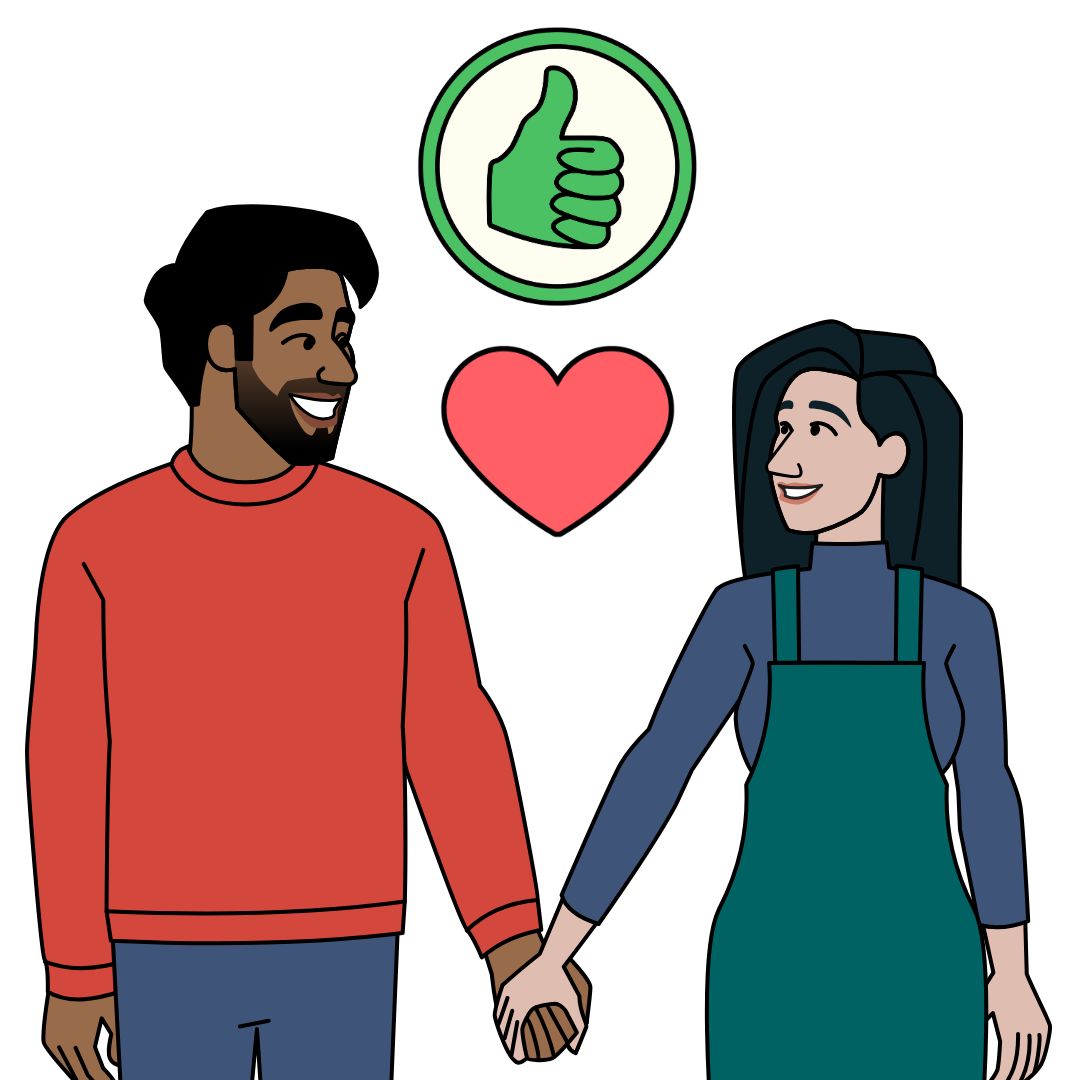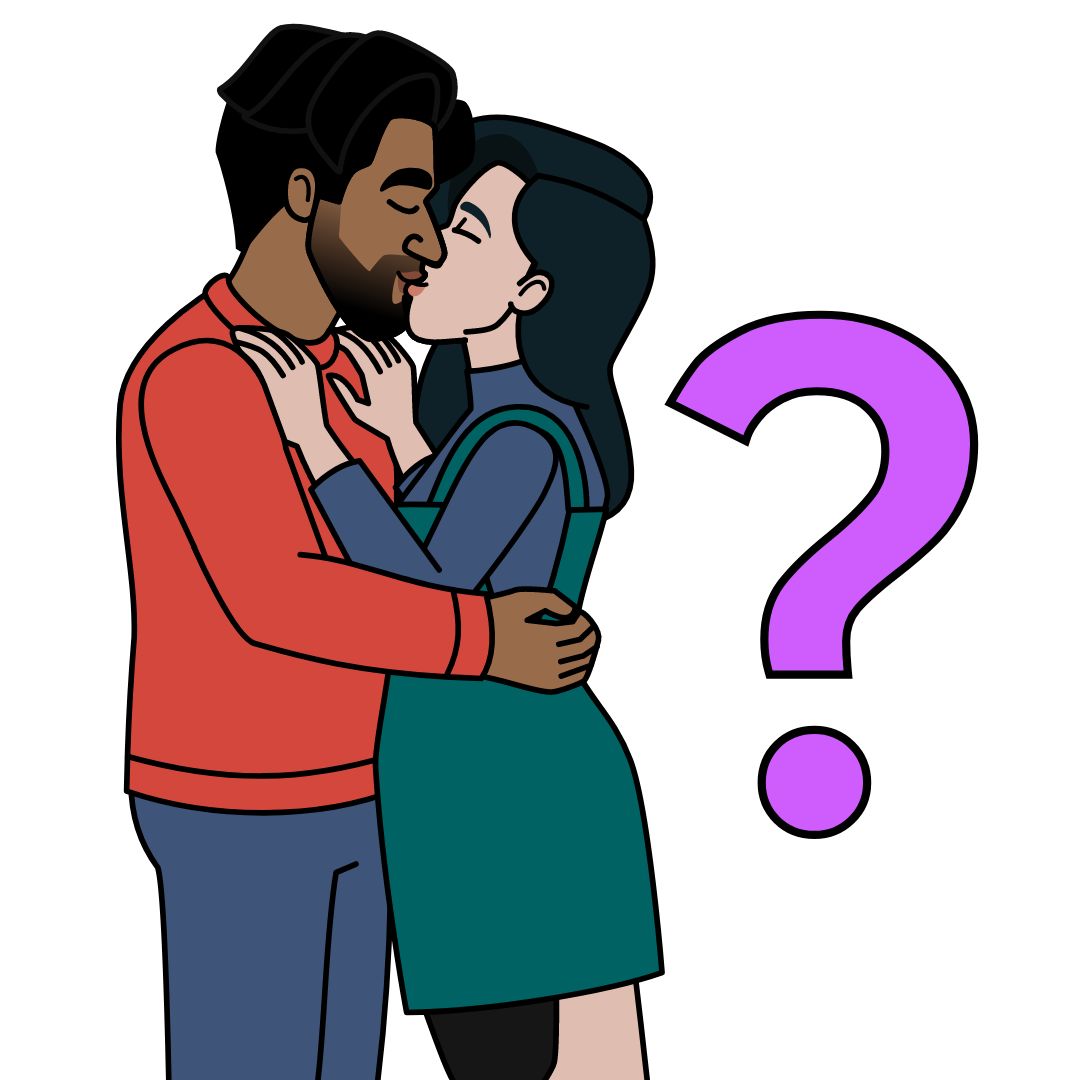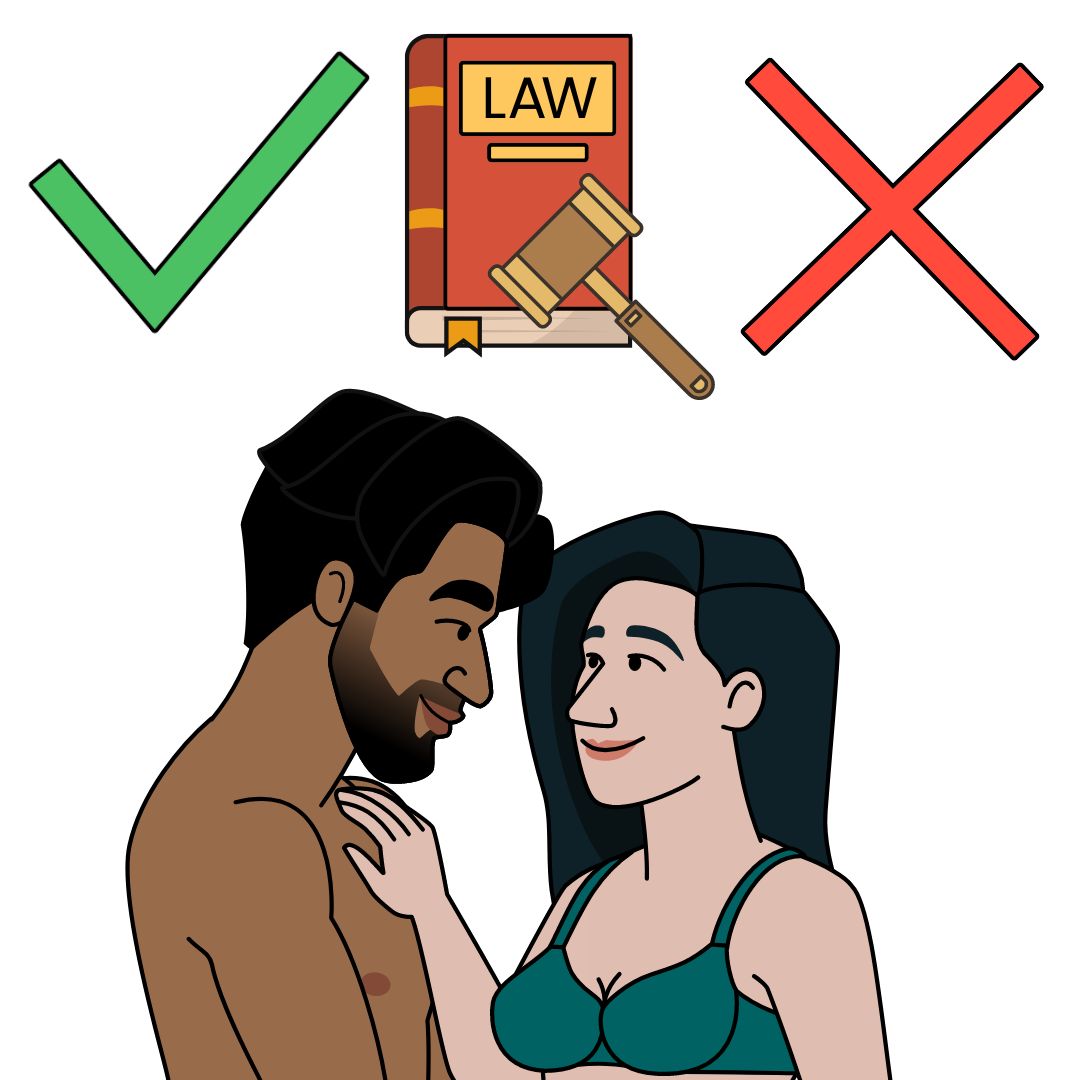Dating
Romantic relationships and dating
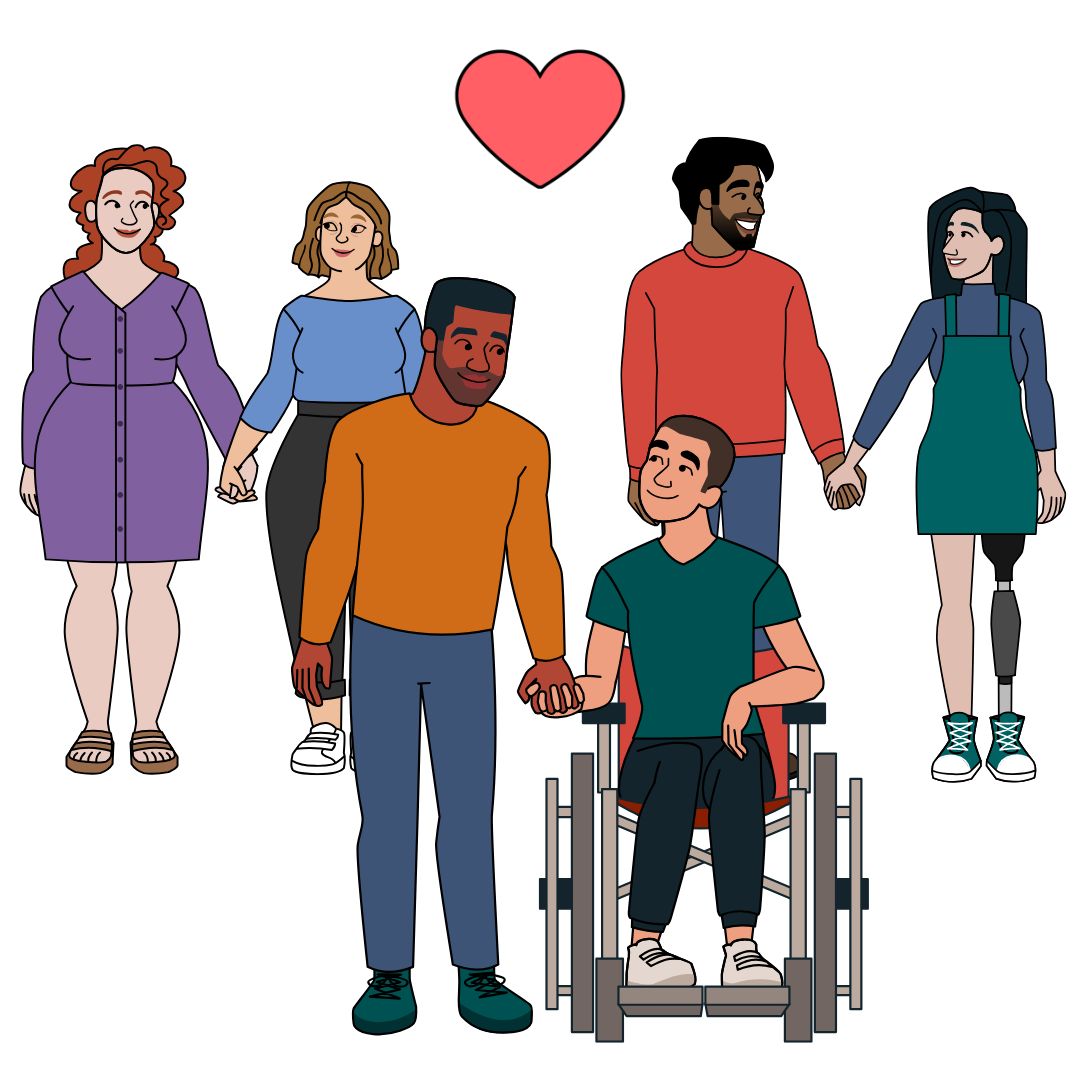
Romantic relationships are a special kind of relationship. Some people call their romantic partner a boyfriend, girlfriend, or partner.
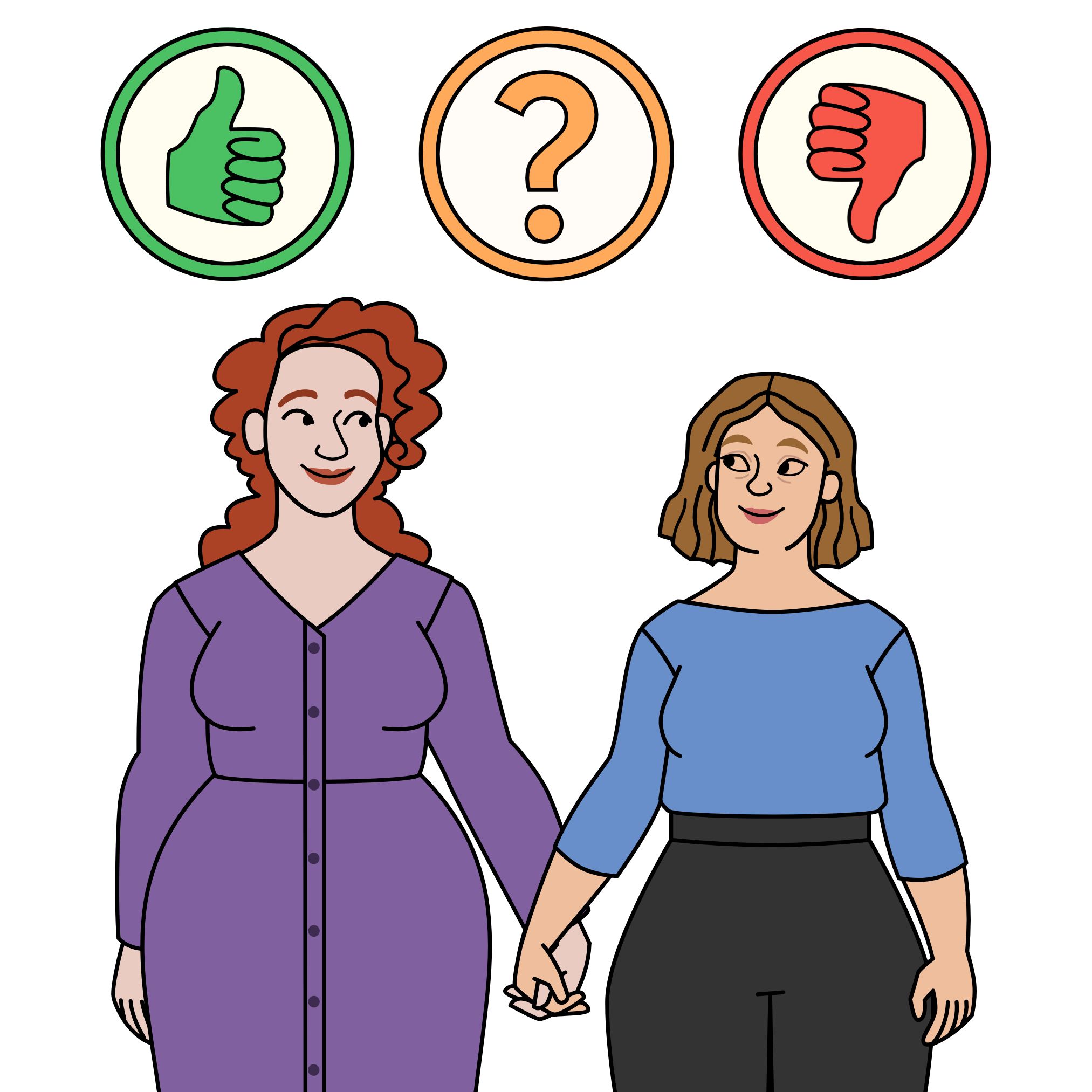
There are rules for romantic relationships and dating that keep everyone safe.
On this page, you will learn the rules for romantic relationships and dating.
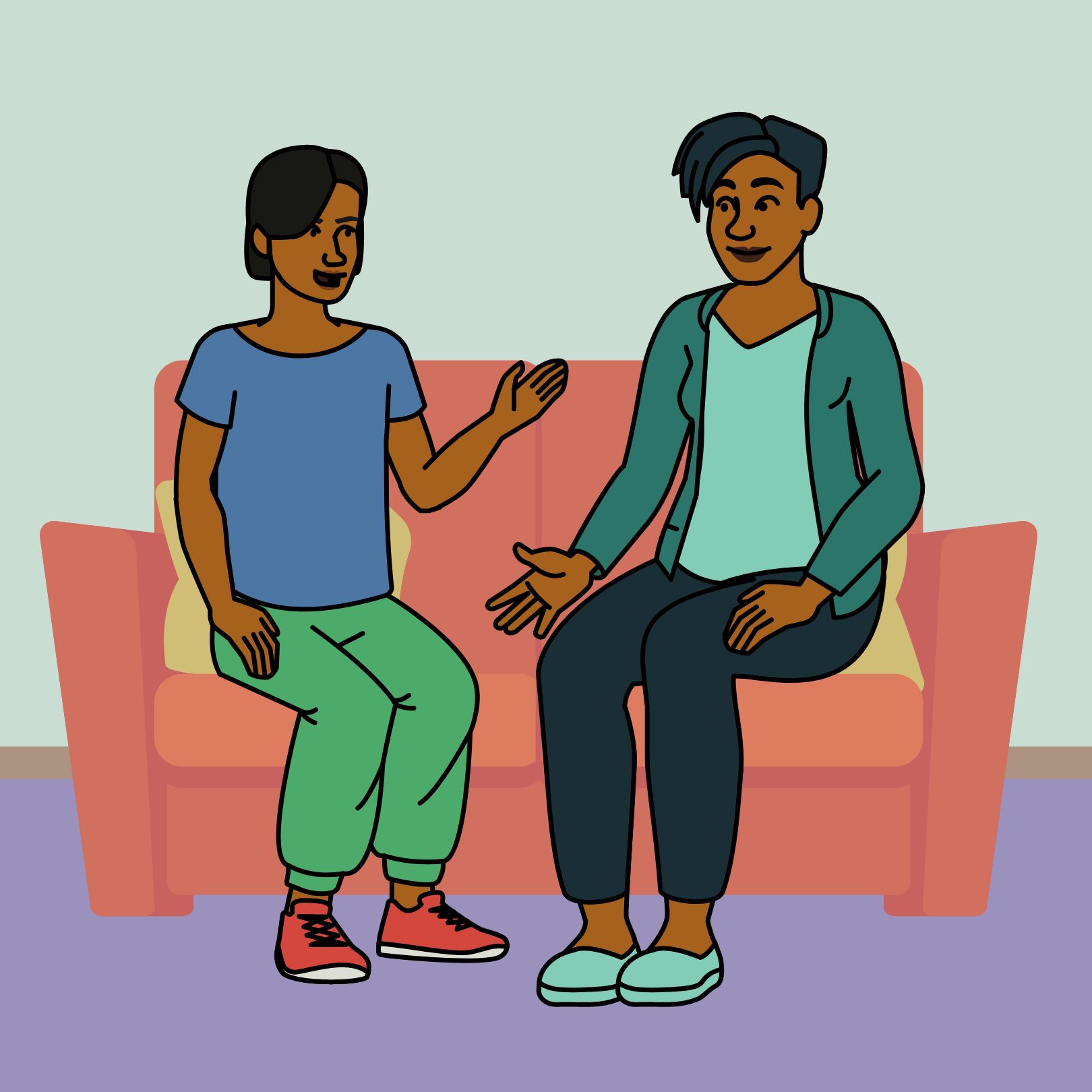
If you have any questions about the information on this page, you can ask a trusted adult for help.
Why do people have romantic relationships?
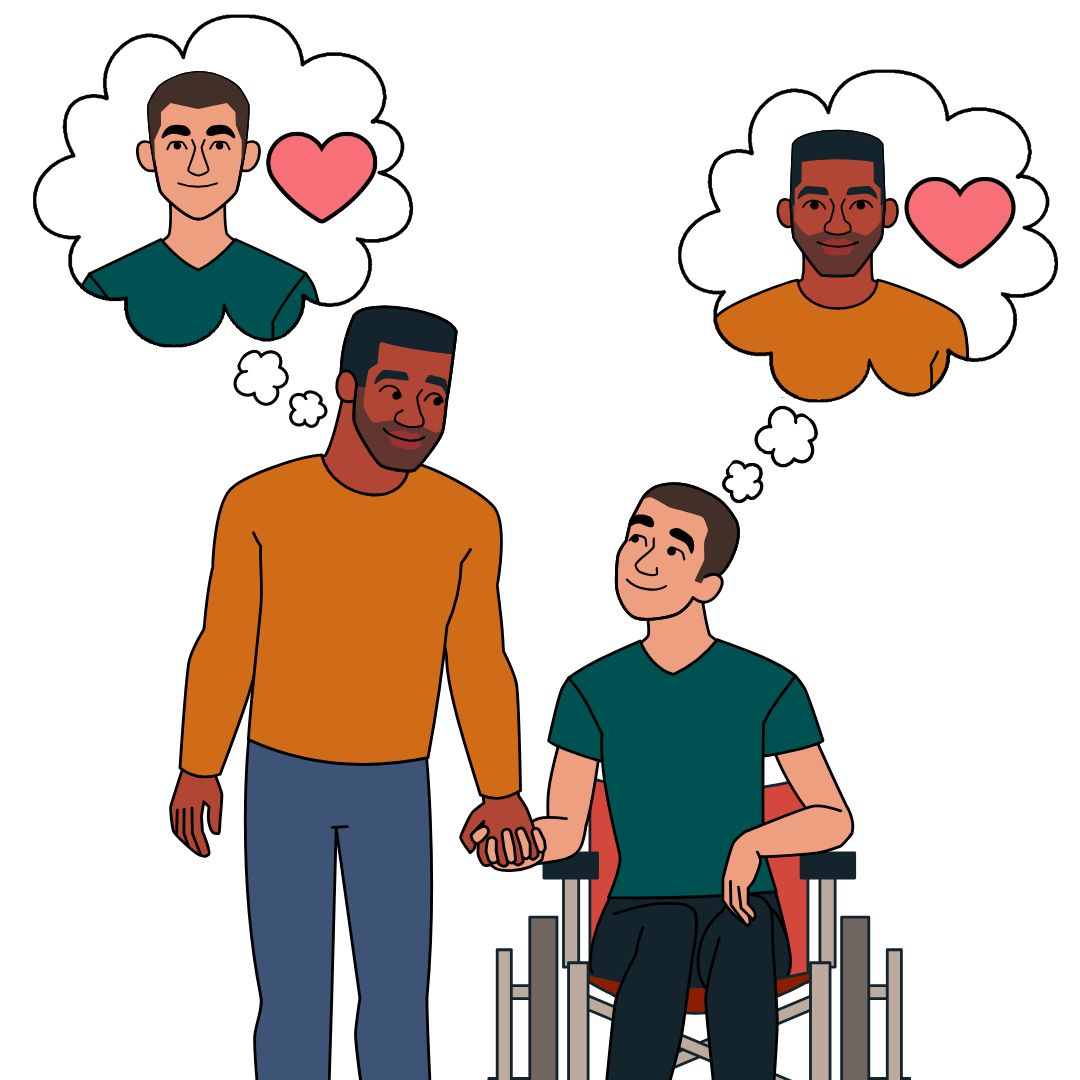
Two people might decide to have a romantic relationship together because they have romantic feelings for each other.
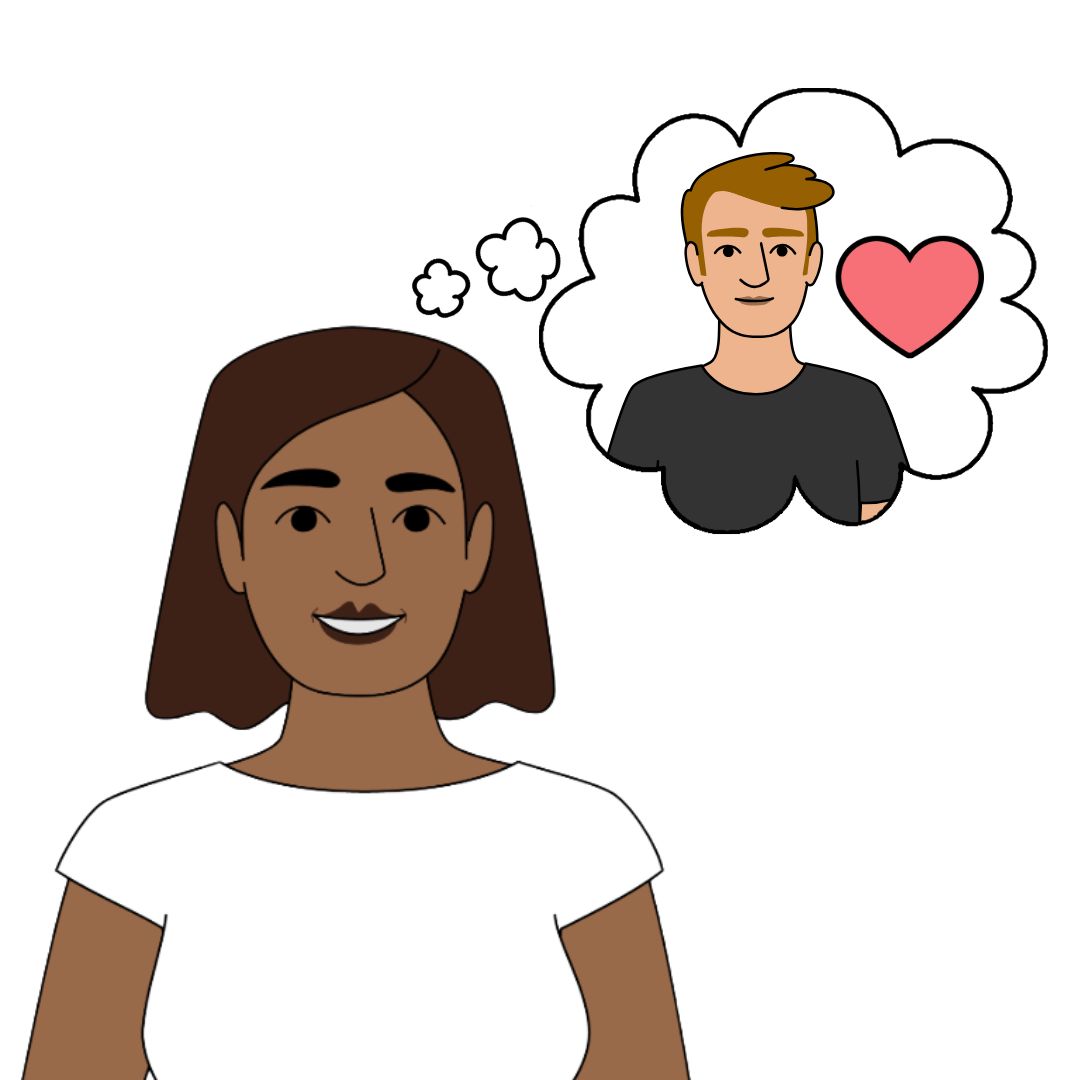
When people have romantic feelings for someone they might say:
- I have a crush on someone
- I fancy someone
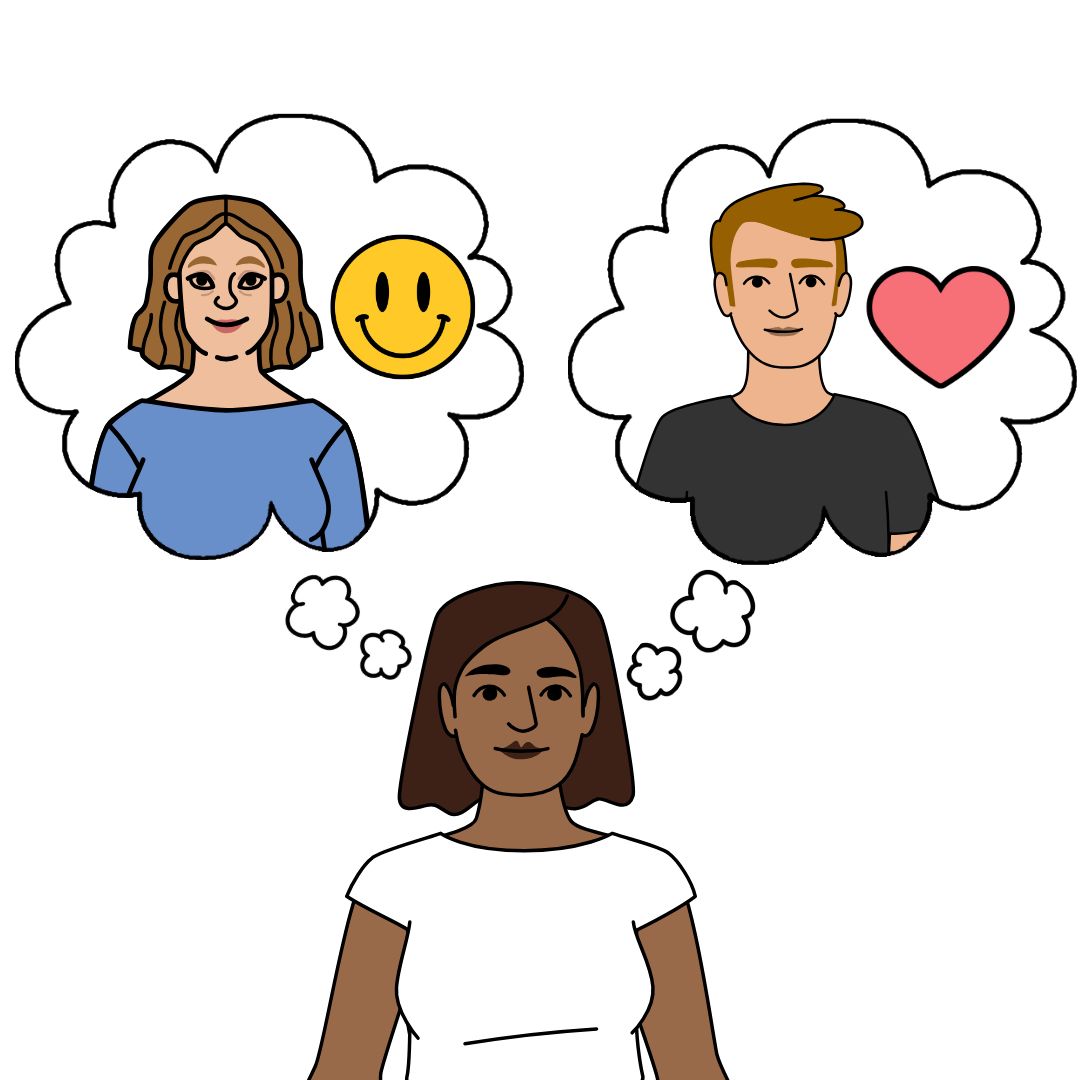
Having romantic feelings for someone is different to liking someone as a friend.

When you have romantic feelings for someone, you might feel excited when you think about them.
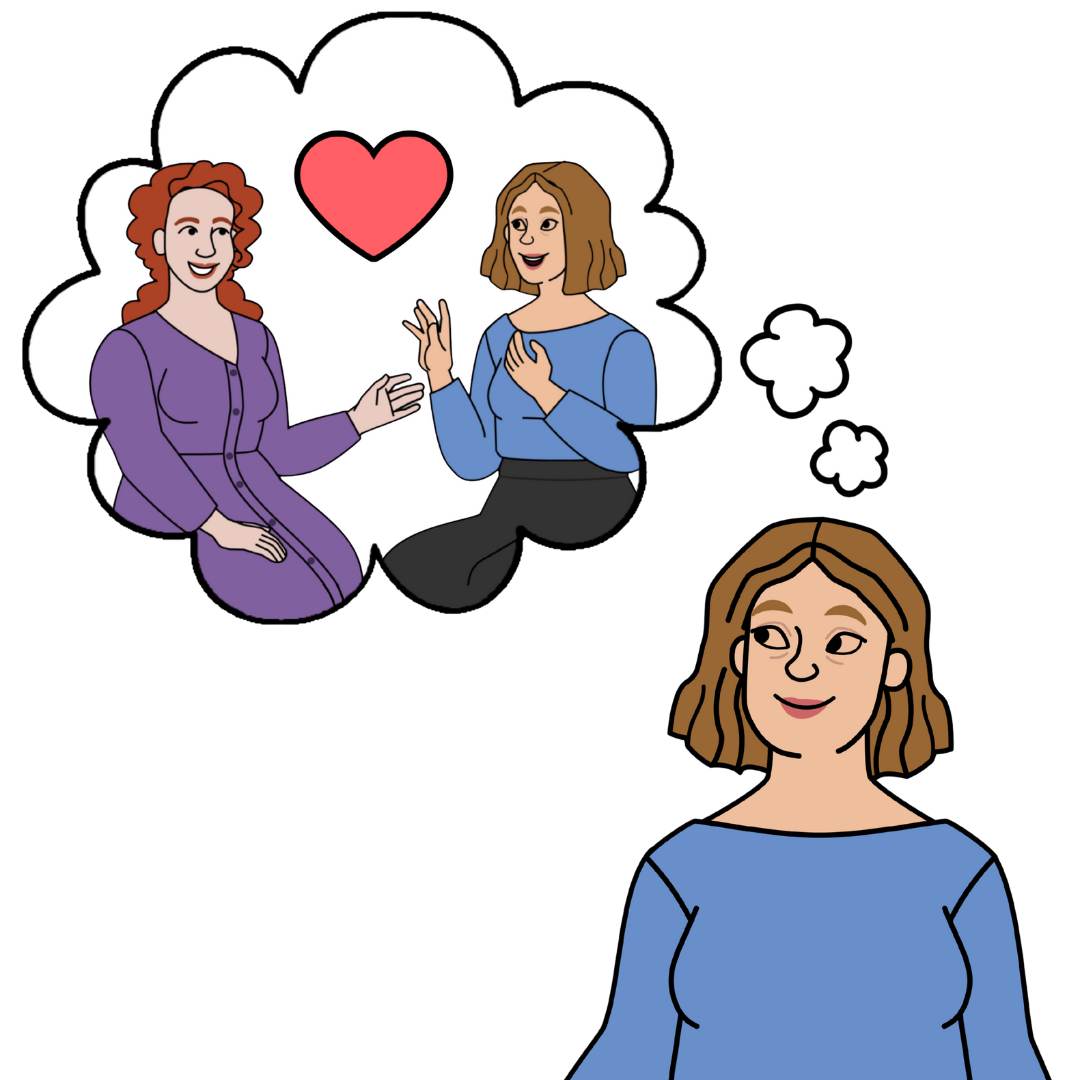
You might want to spend lots of time with them.
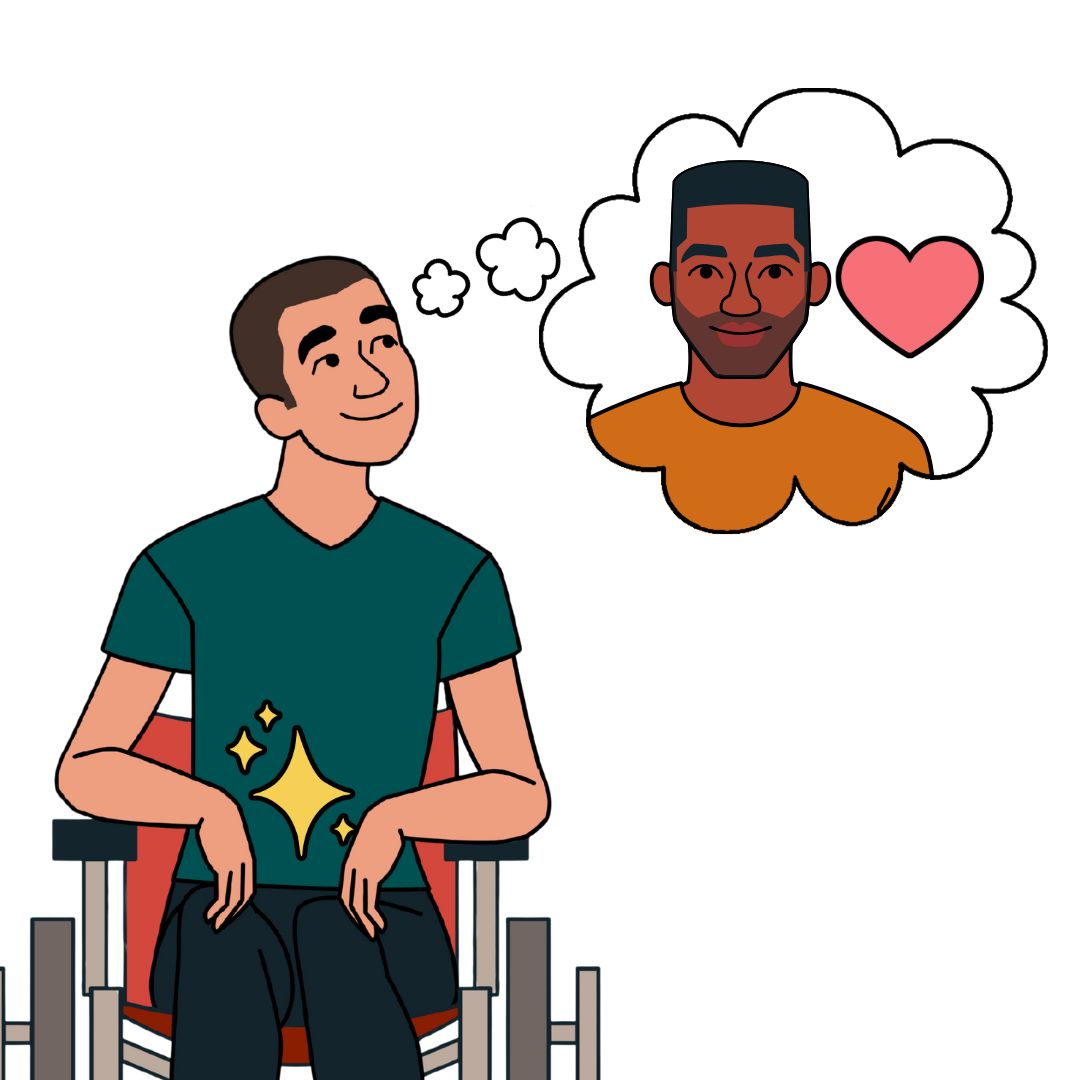
You might get a nice feeling in your tummy or body when you think about them.
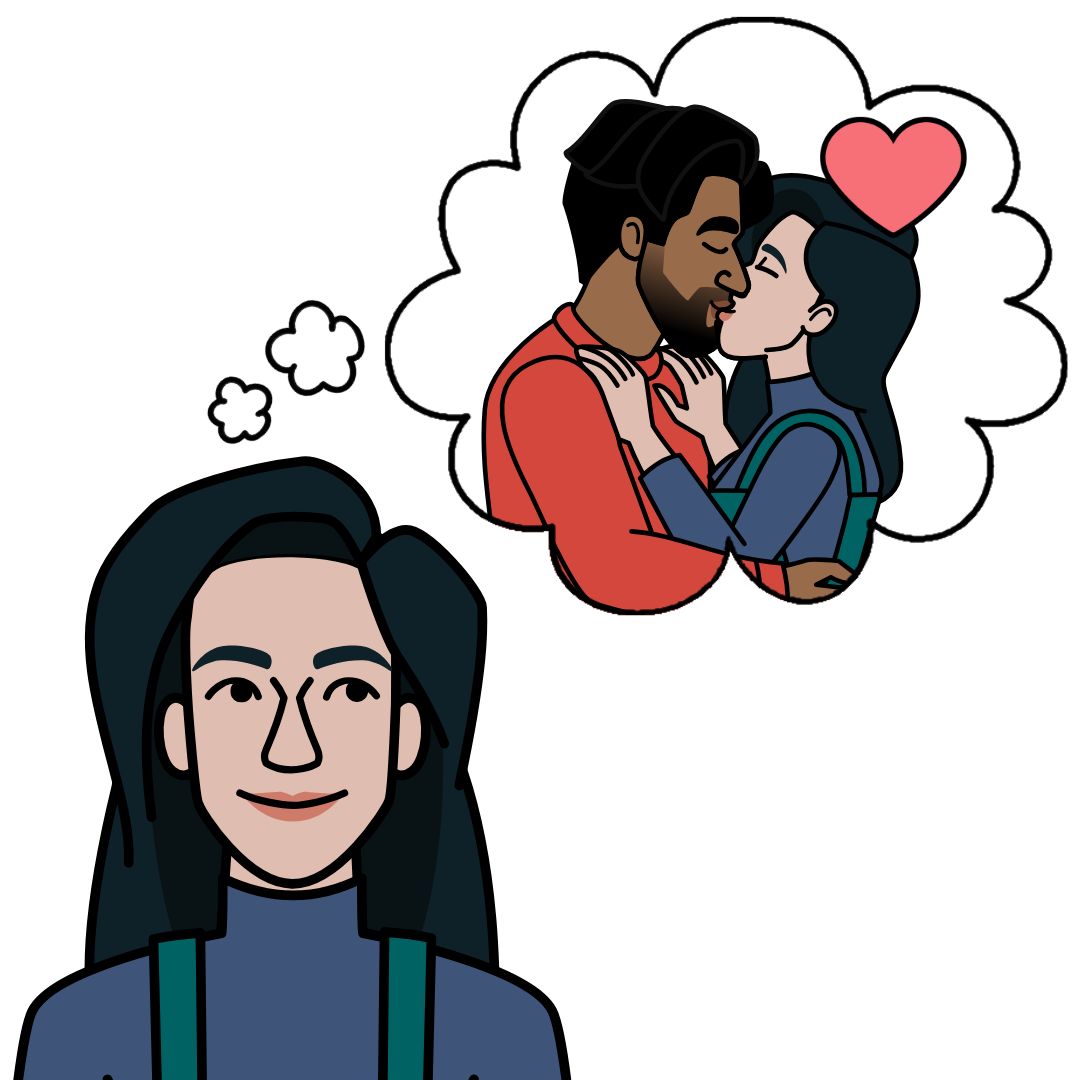
You might think about touching or kissing them romantically.
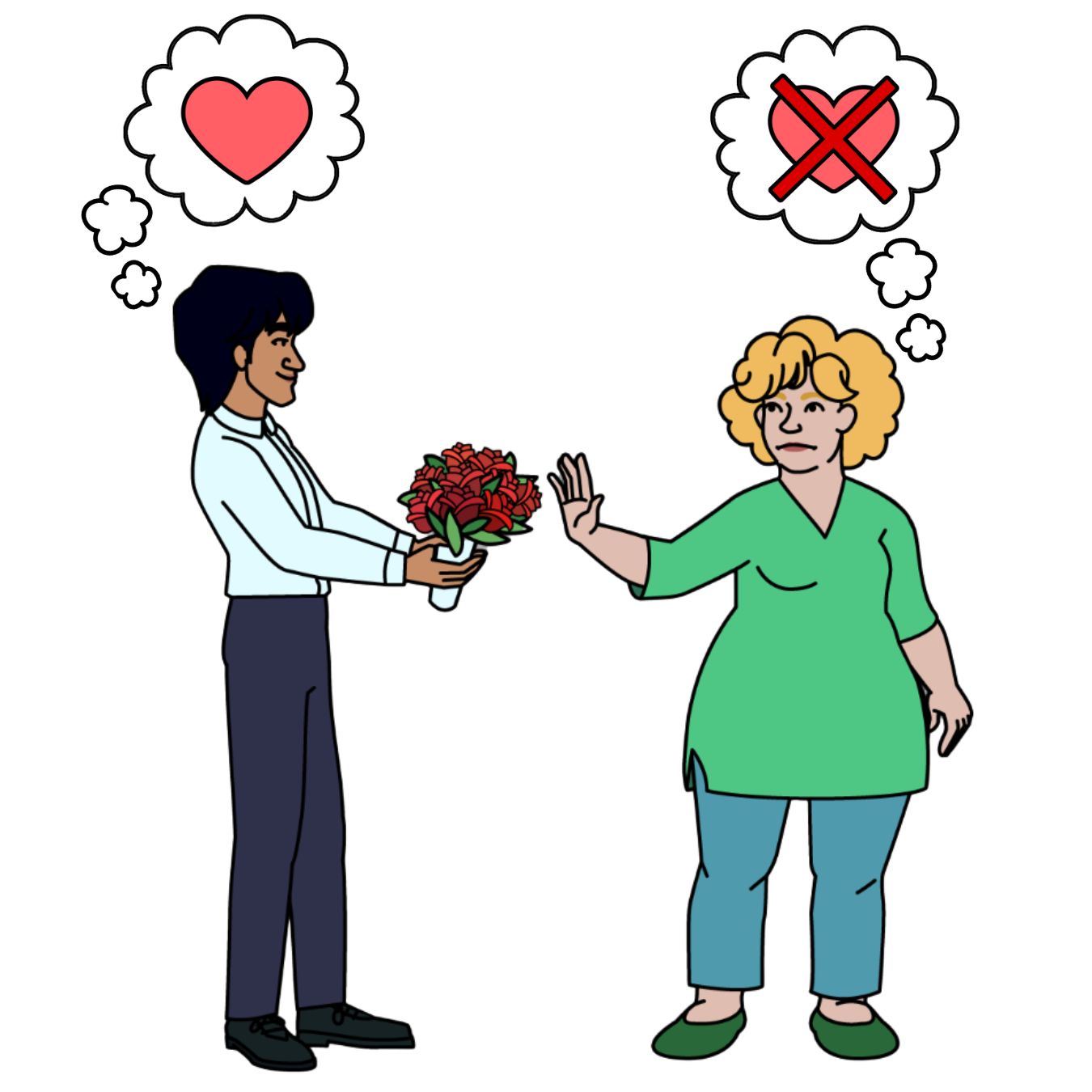
Sometimes the person you have romantic feelings for might not feel the same way about you.
Having romantic feelings for someone does not mean you are in a romantic relationship with them.
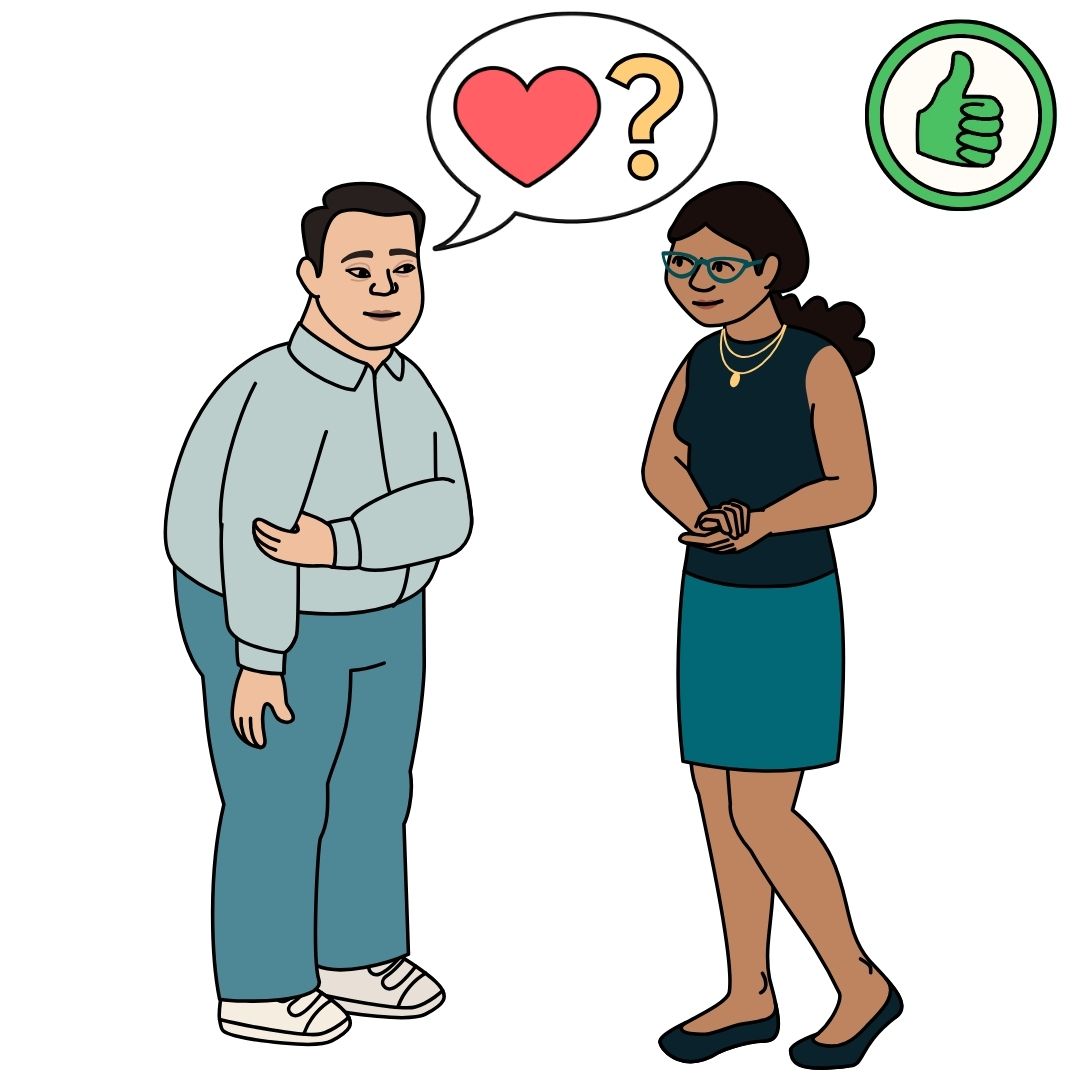
If you want to know if someone has romantic feelings for you, you can ask if they would like to go on a date with you.

Scroll down to learn about asking someone on a date.
Who can you date?
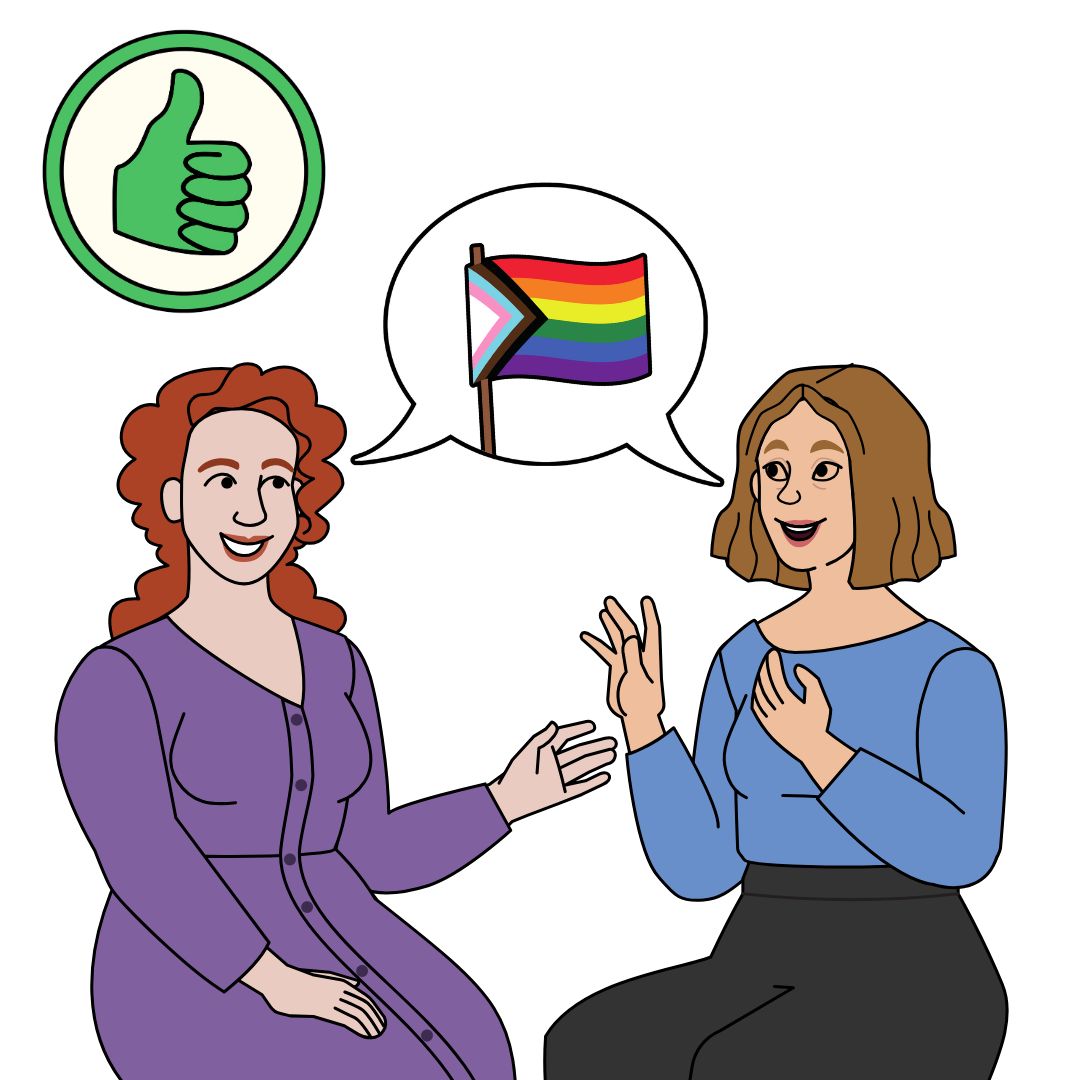
Dating someone about the same age as you, who cares about the same things as you, is a great way to start an equal and respectful relationship.
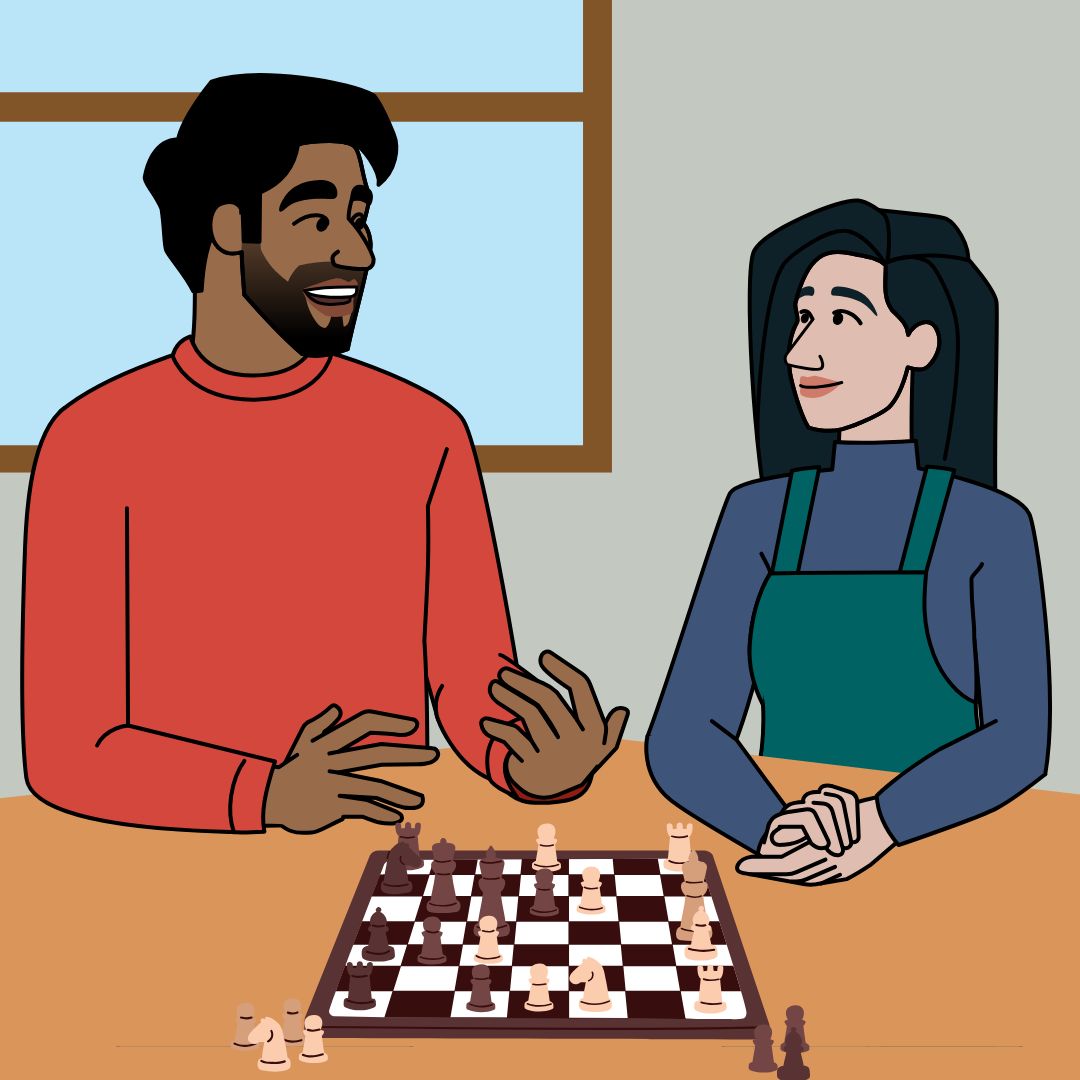
People often meet someone they have romantic feelings for through shared interests, and start out as friends.
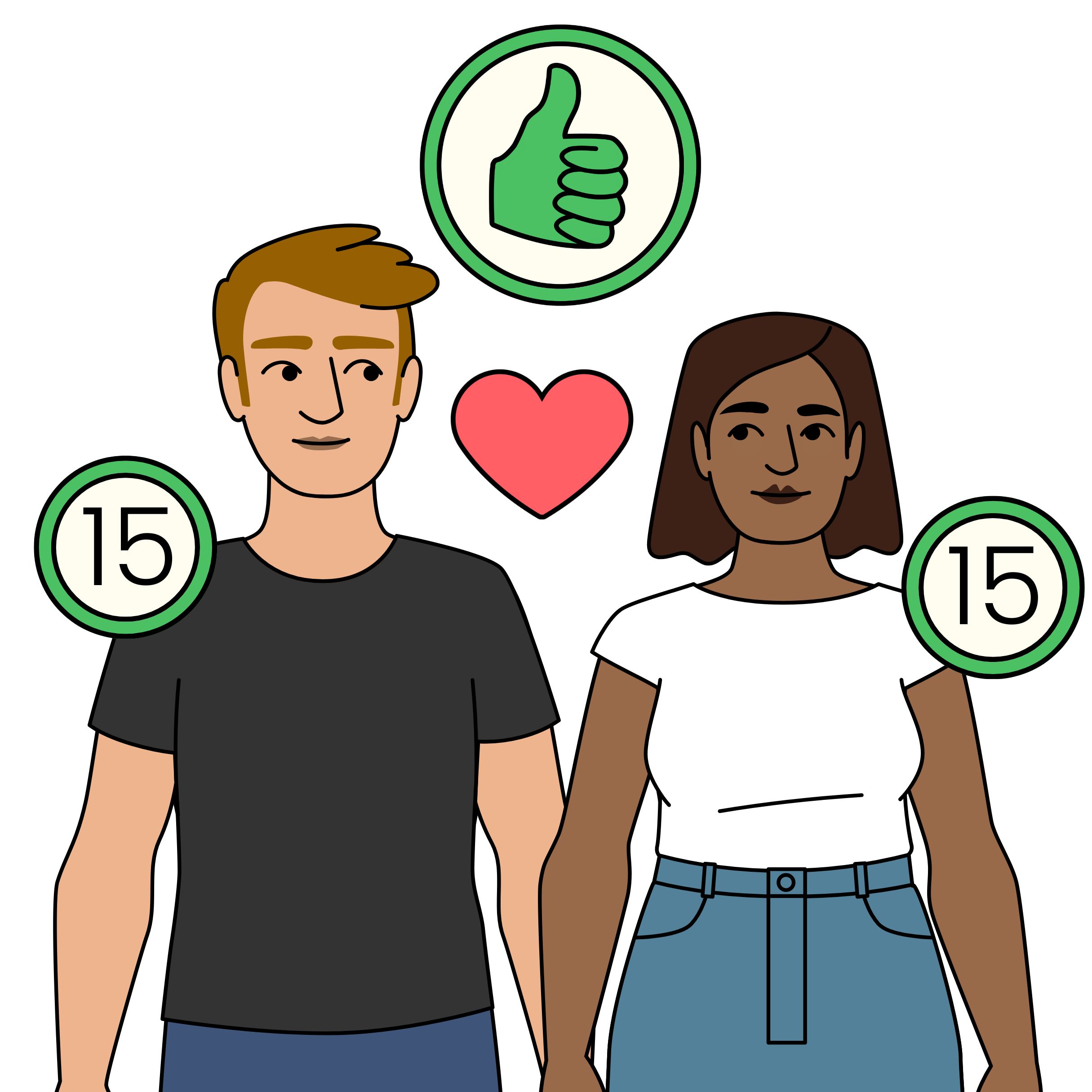
When you are a teenager (17 years old and younger) it is best to date people who are the same age as you.
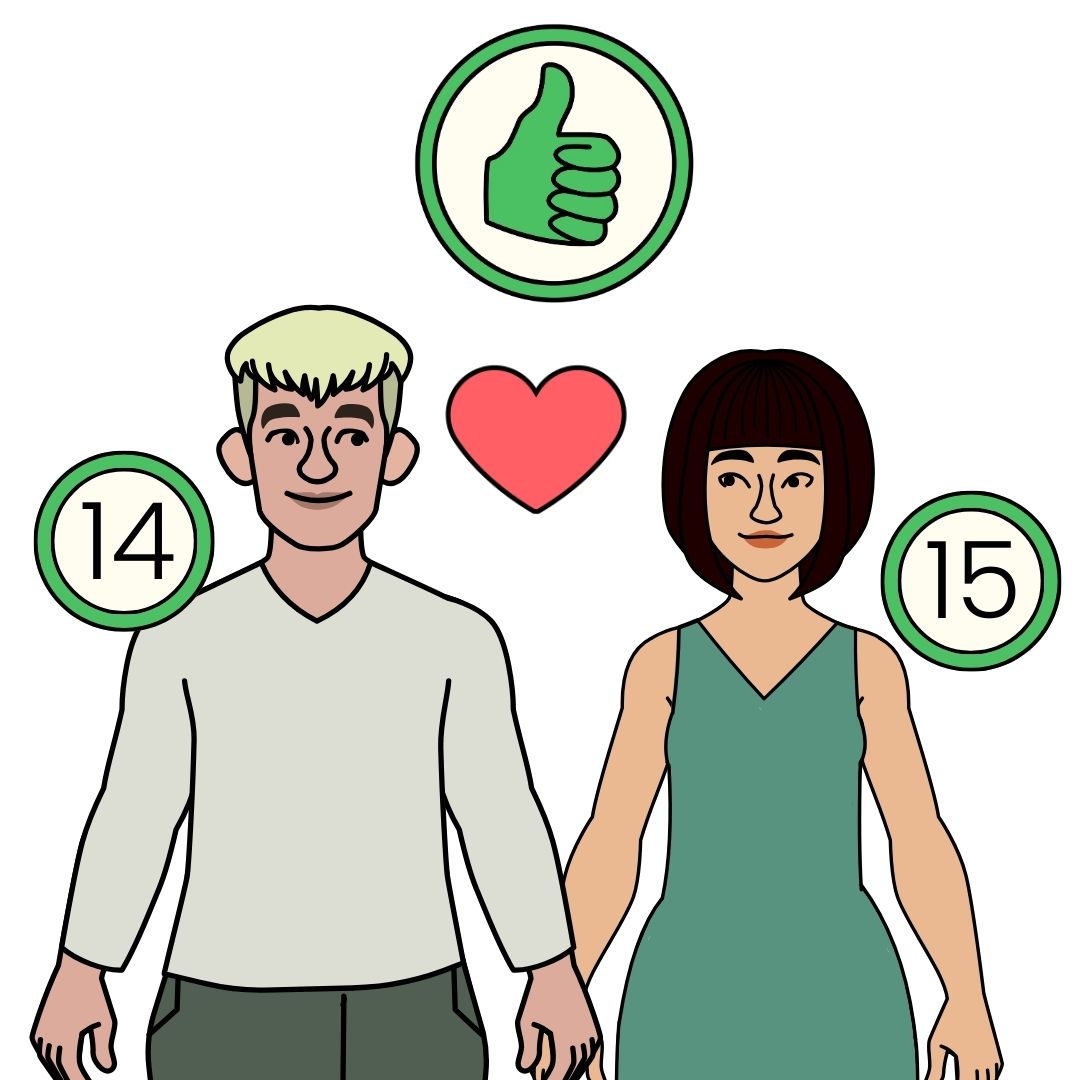
It is also OK to date other teenagers that are close to being the same age as you.
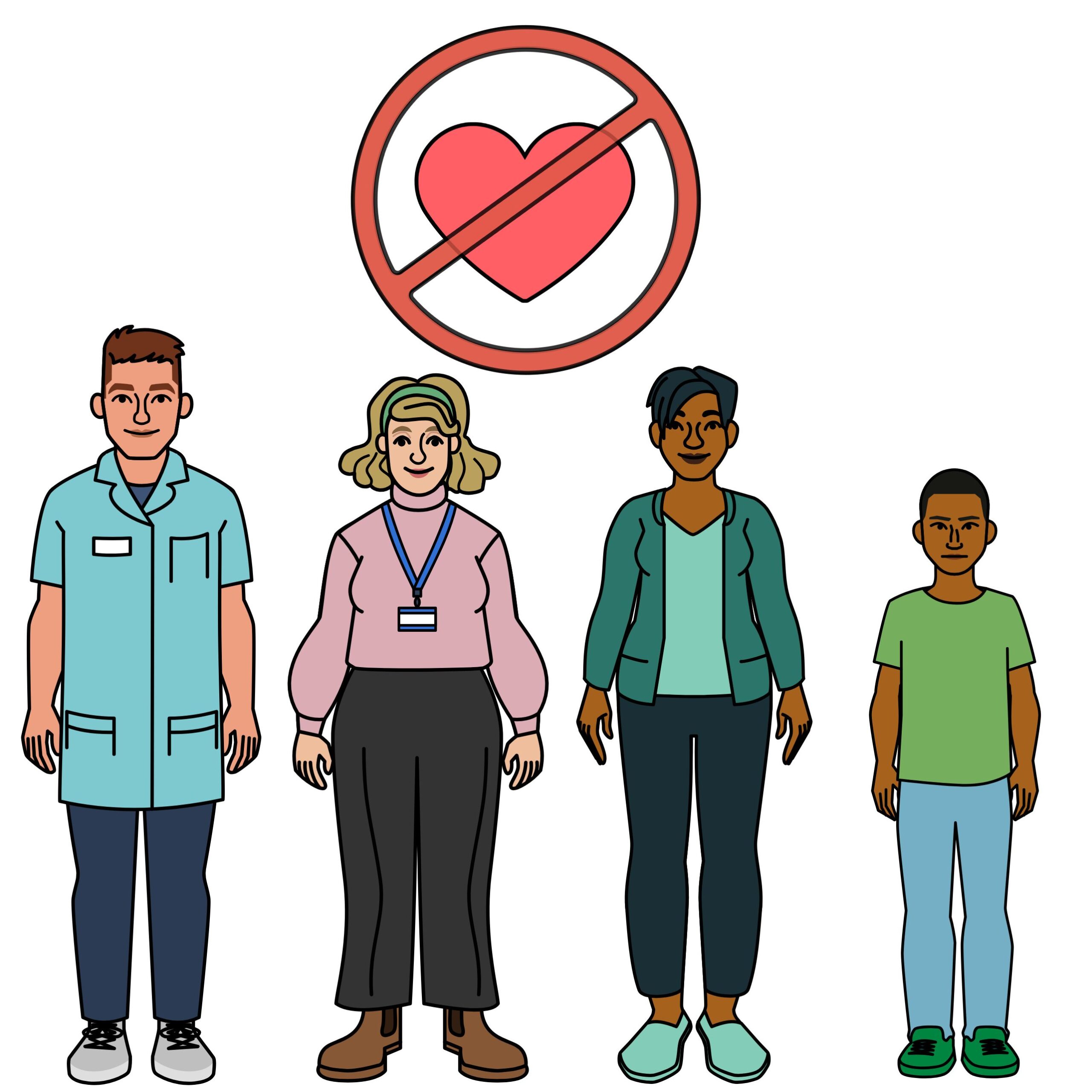
There are some people you can not go on a date with.
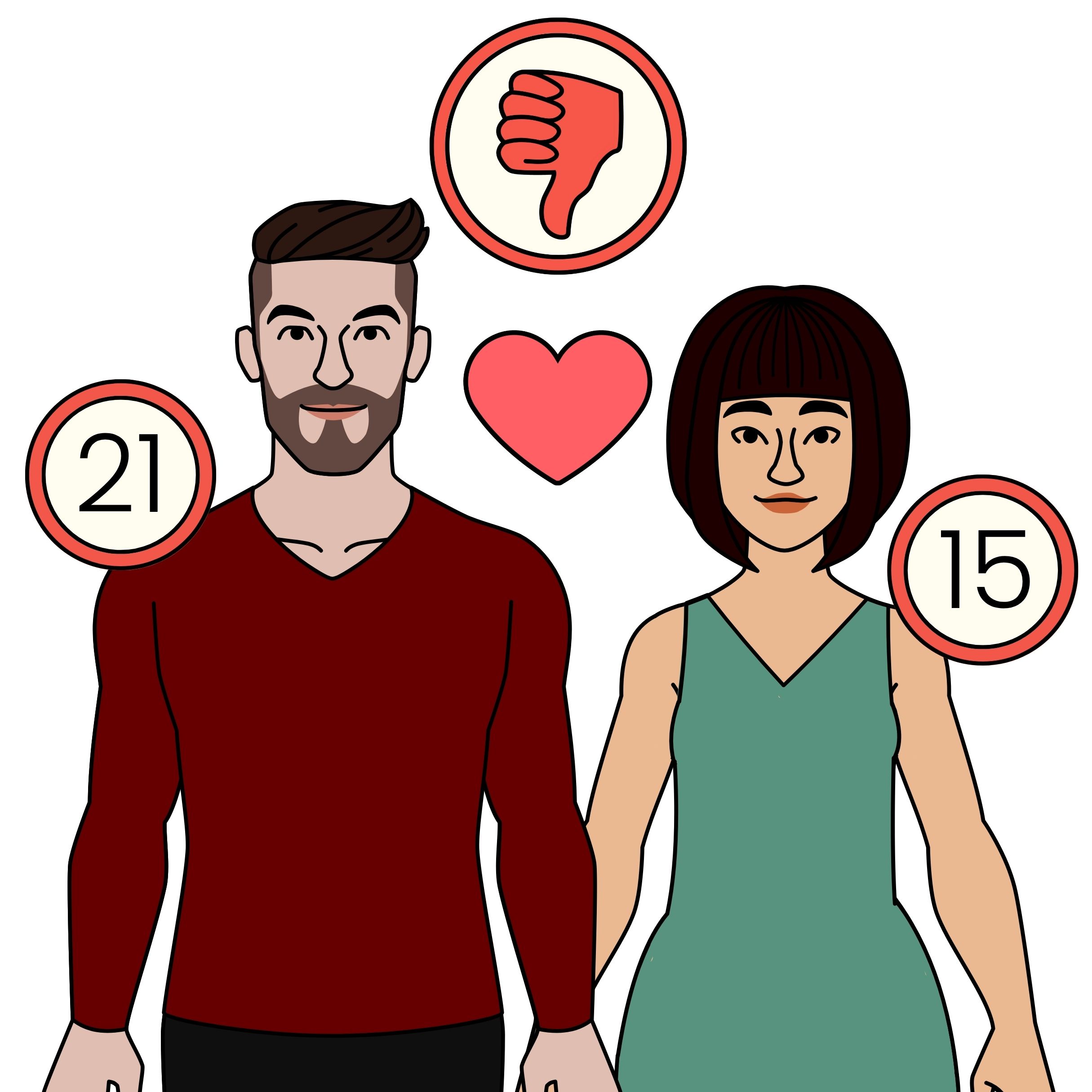
Adults (18 years and older) are not allowed to date people under 16 years old.
Adults who have romantic relationships with people under 16 are breaking the law.
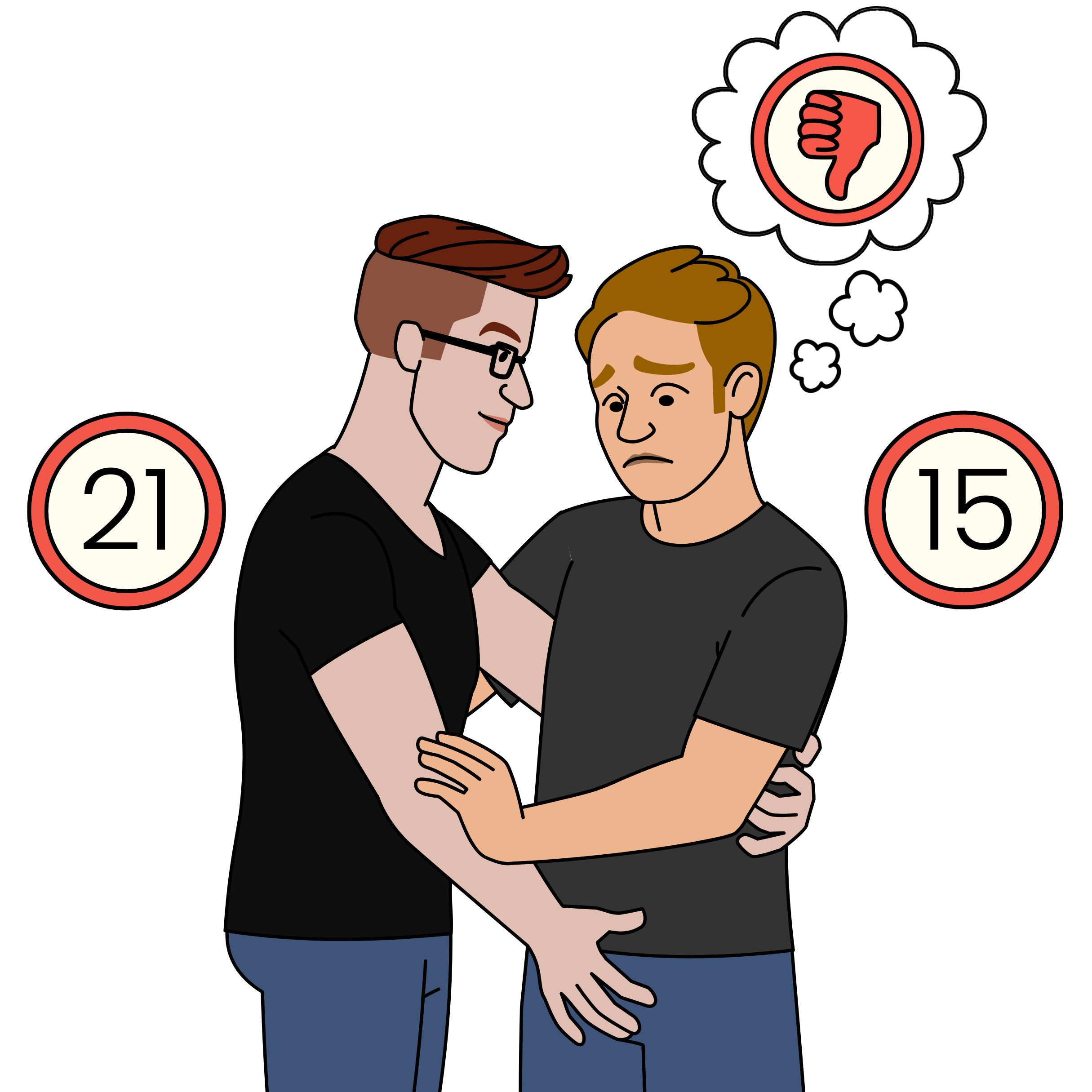
This is because children and teenagers can be pressured by older people to do romantic or sexual things they are not ready for.
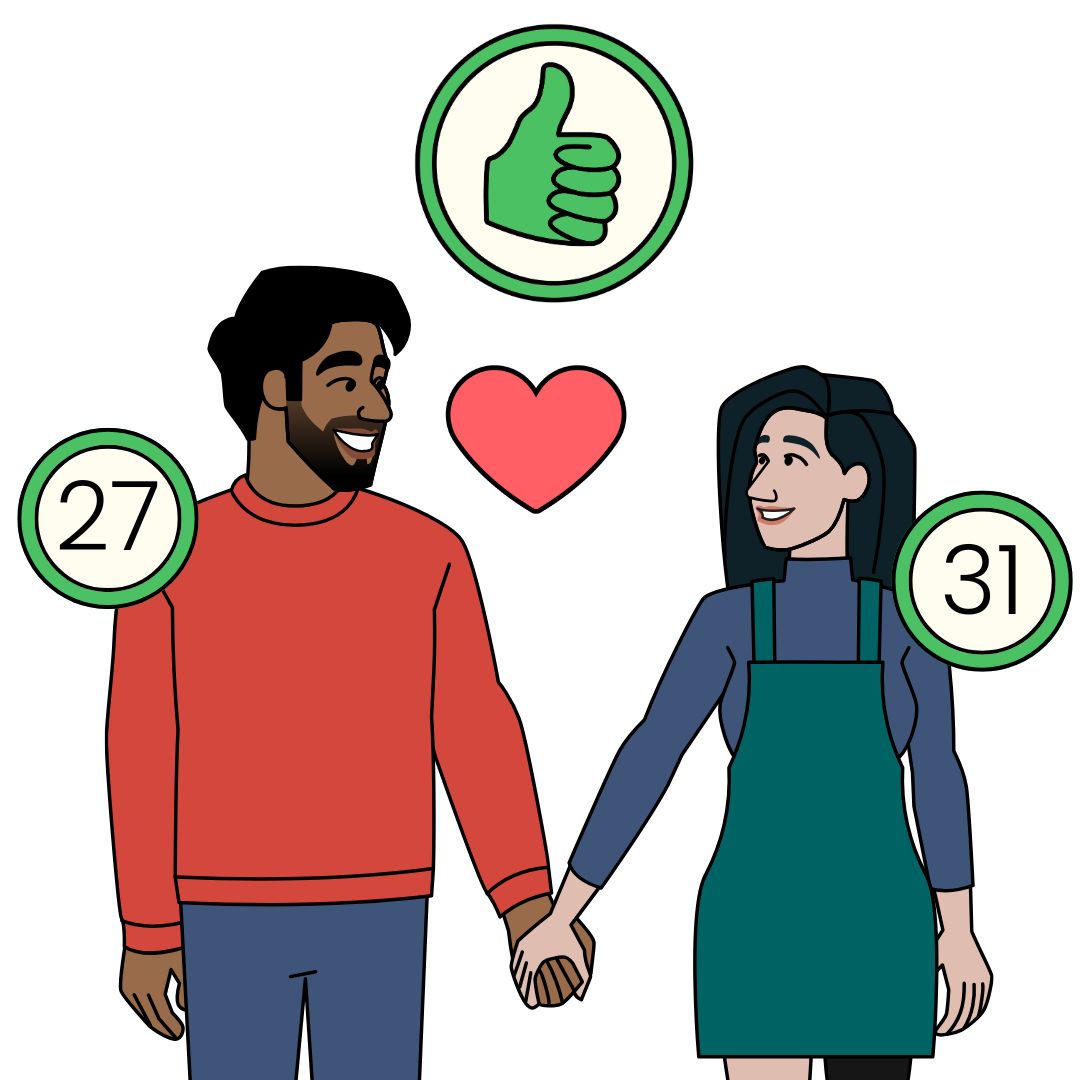
It is OK for adults over age 18 to date people with a bigger age difference.
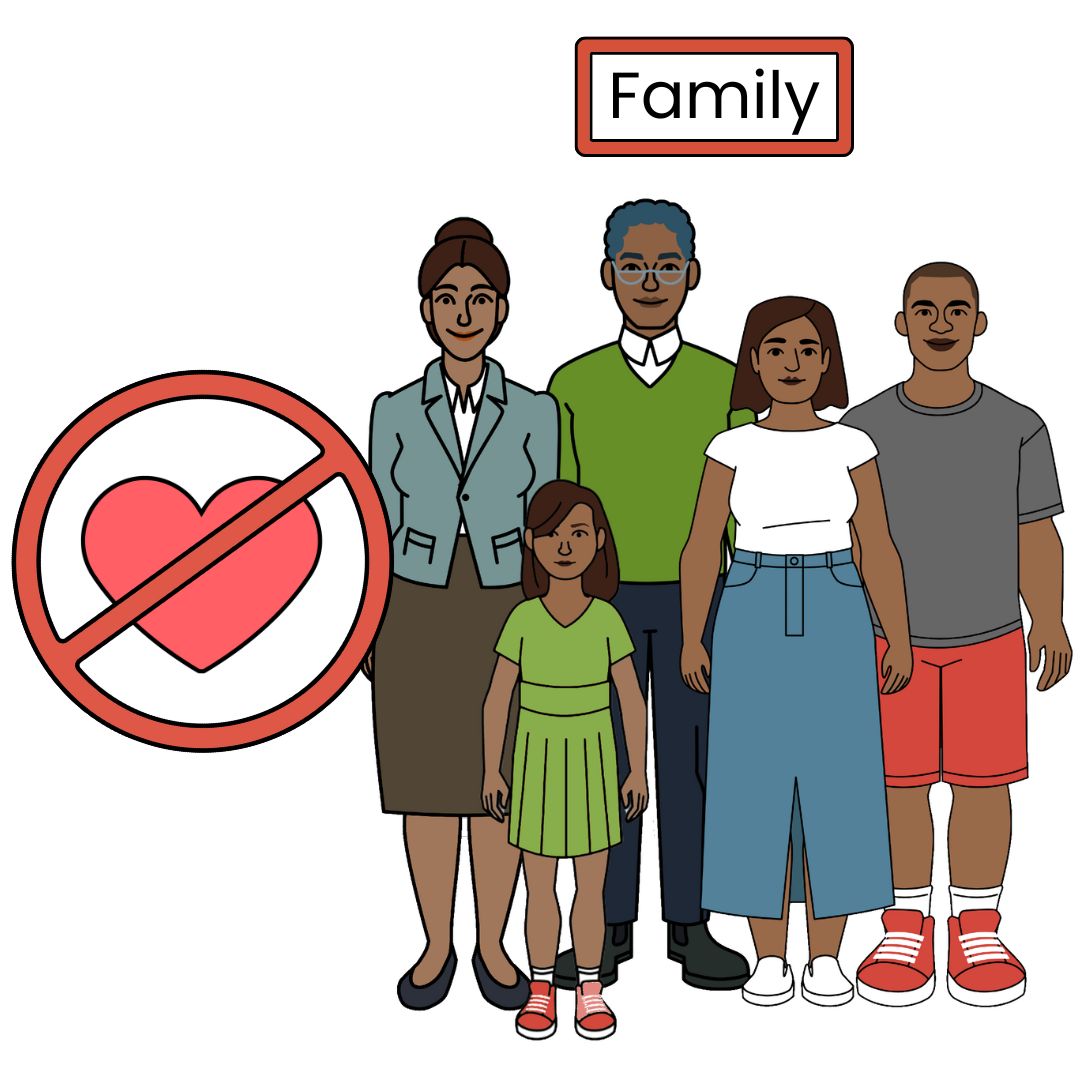
You can not go on a date with someone in your family. This could be your:
- Mum or dad
- Brother or sister
- Aunt or uncle
- Foster carers
- Cousins
- Step mum or dad
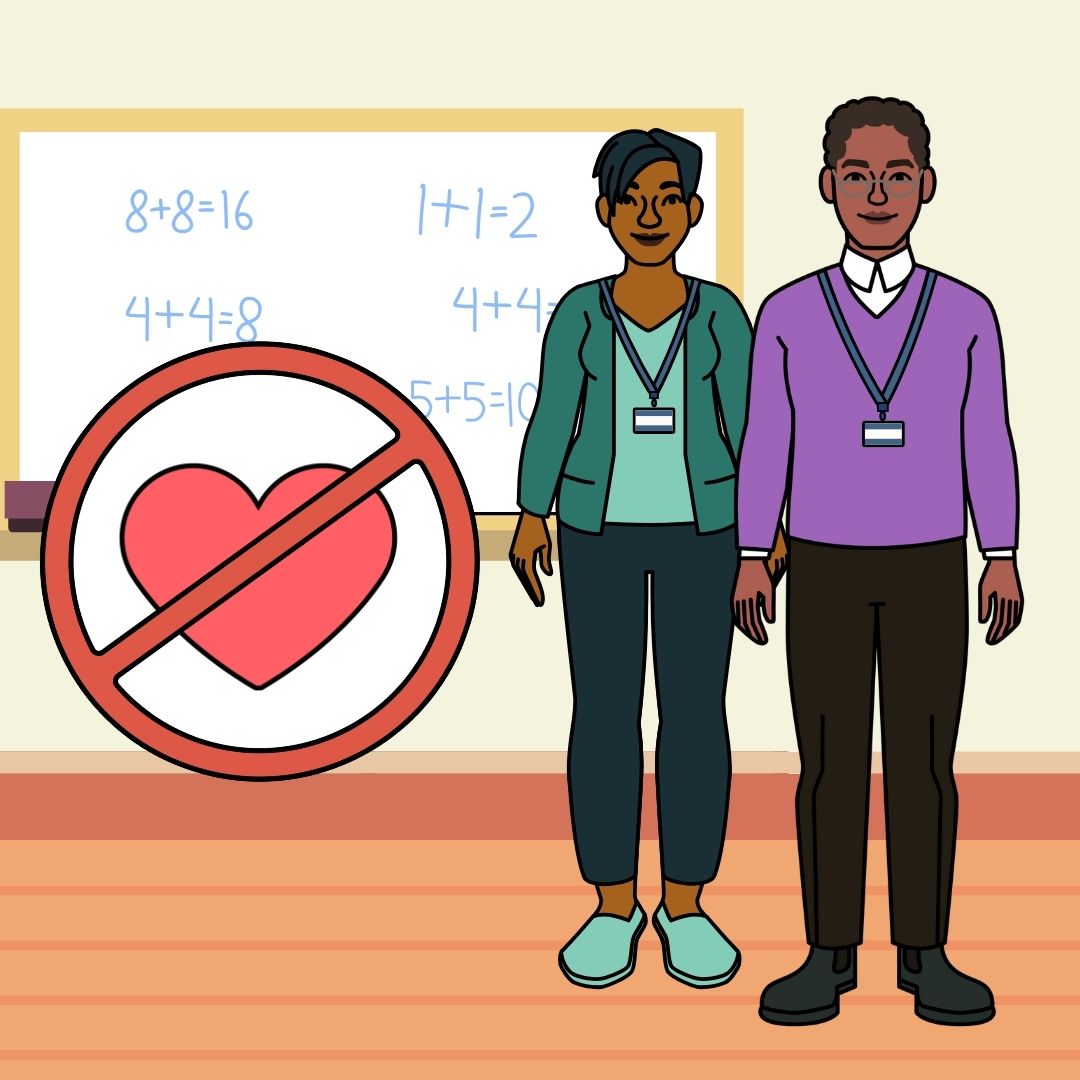
You can not go on a date with any person who works in your school. This could be a:
- Teacher
- Classroom assistant
- Tutor
- Sports coach
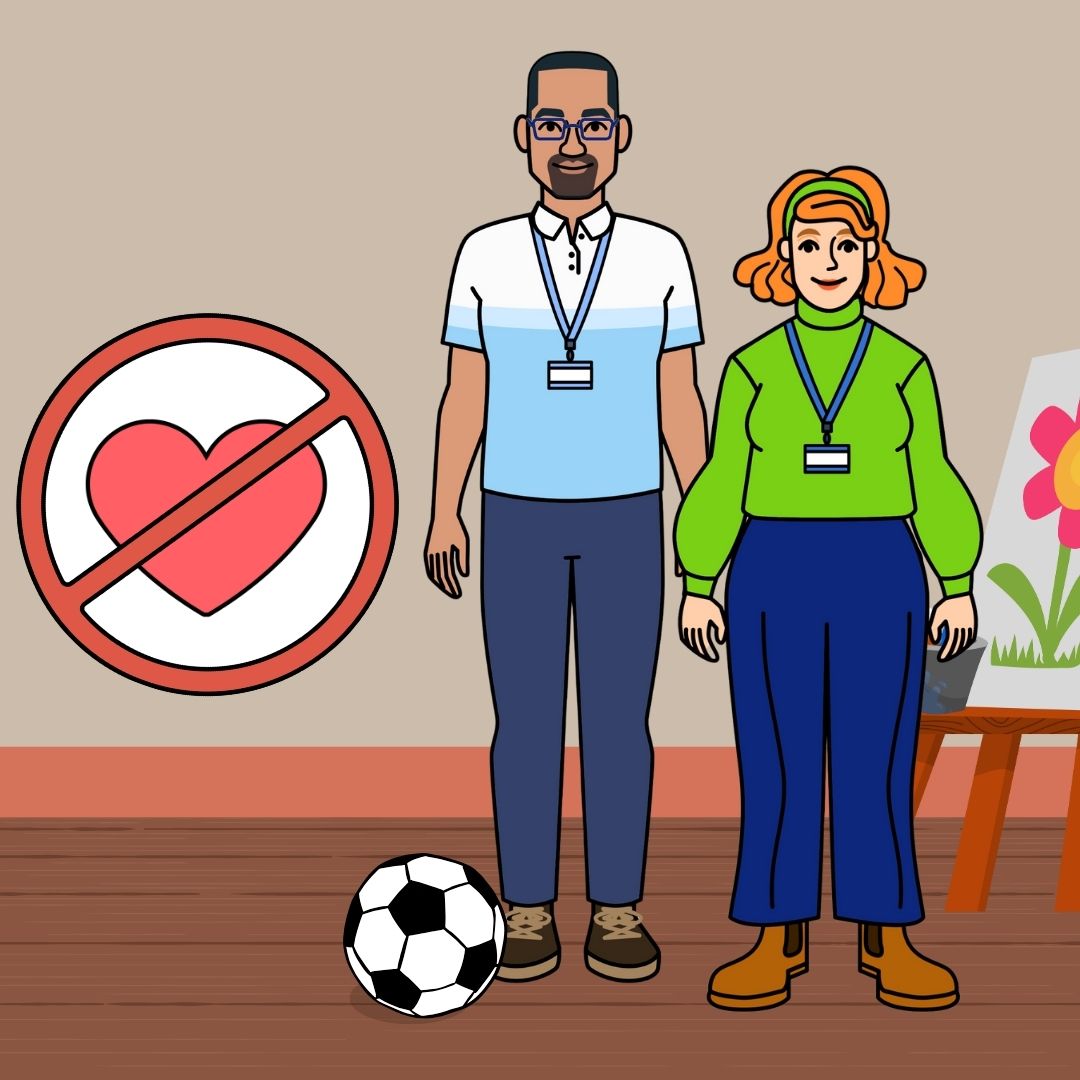
You can not go on a date with someone who works at or volunteers at any clubs or groups you go to, like sports clubs or youth groups.
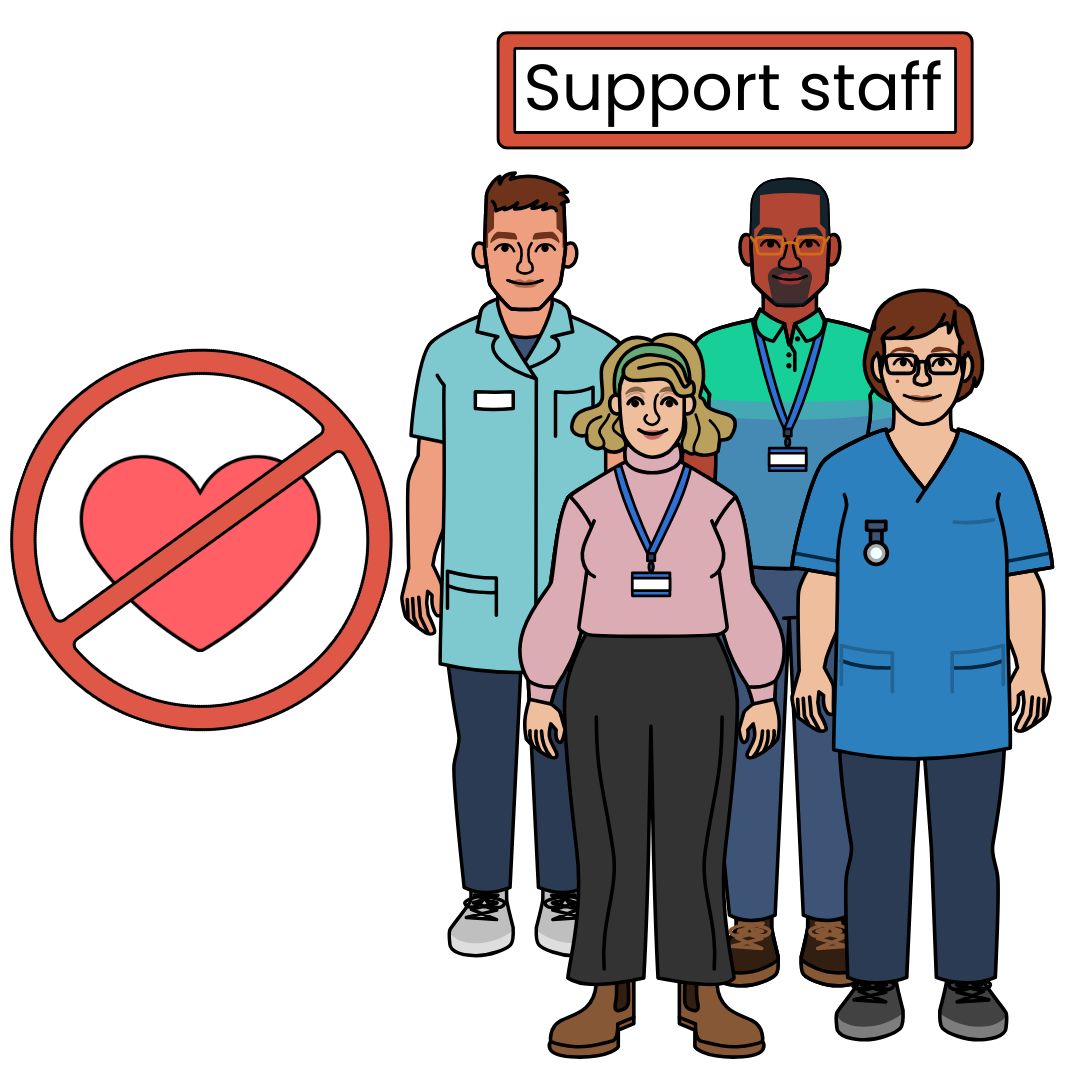
You can not date anyone who supports you as their job. This could be someone like a:
- Carer
- Nurse
- Support worker
- Therapist

If you have romantic feelings for someone and you are unsure if it is okay to go on a date with them, talk to a trusted adult about it.
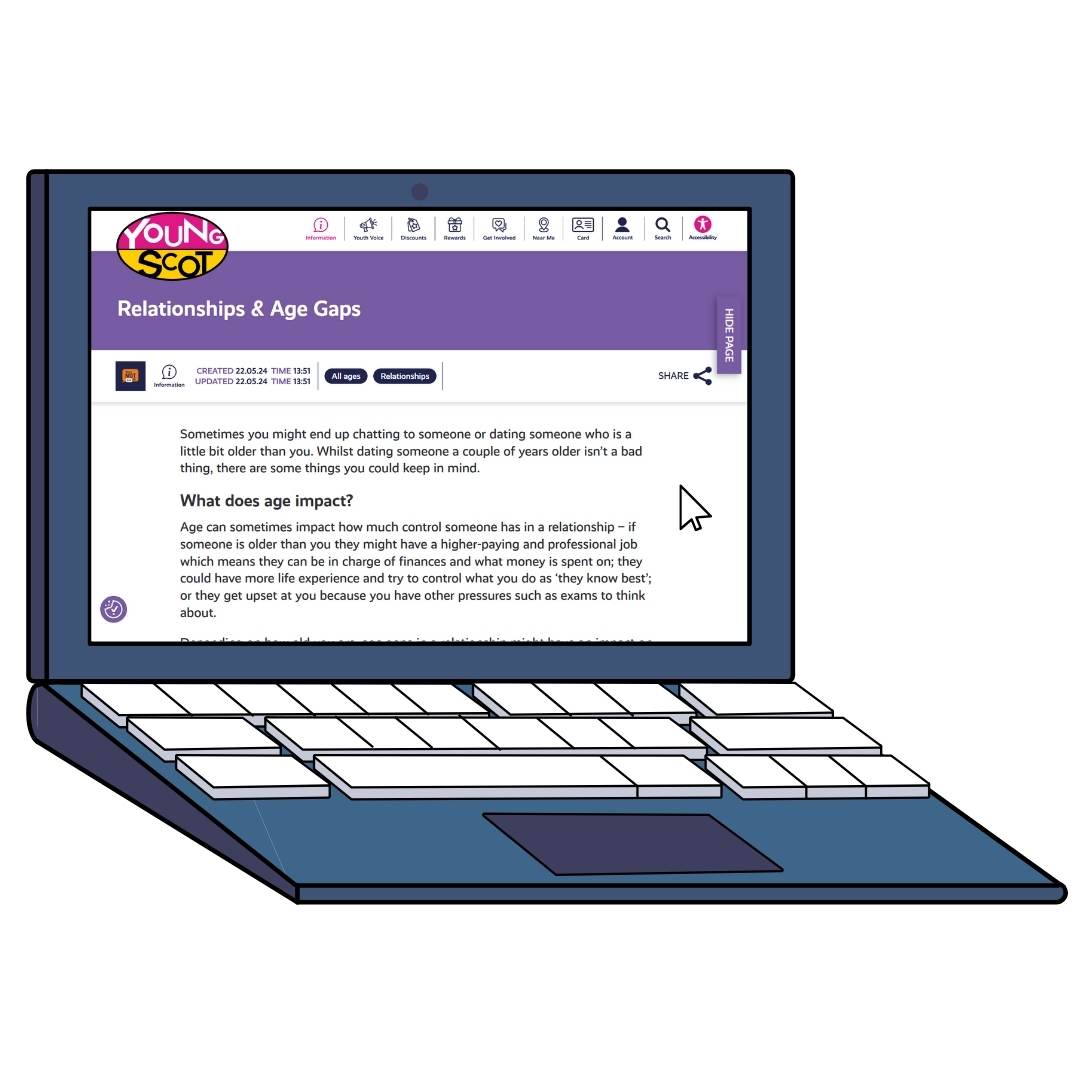
You can also learn more about age gaps and relationships for teenagers on the Young Scot website.

Scroll down to learn about meeting someone you can date.
How can you meet someone to date?
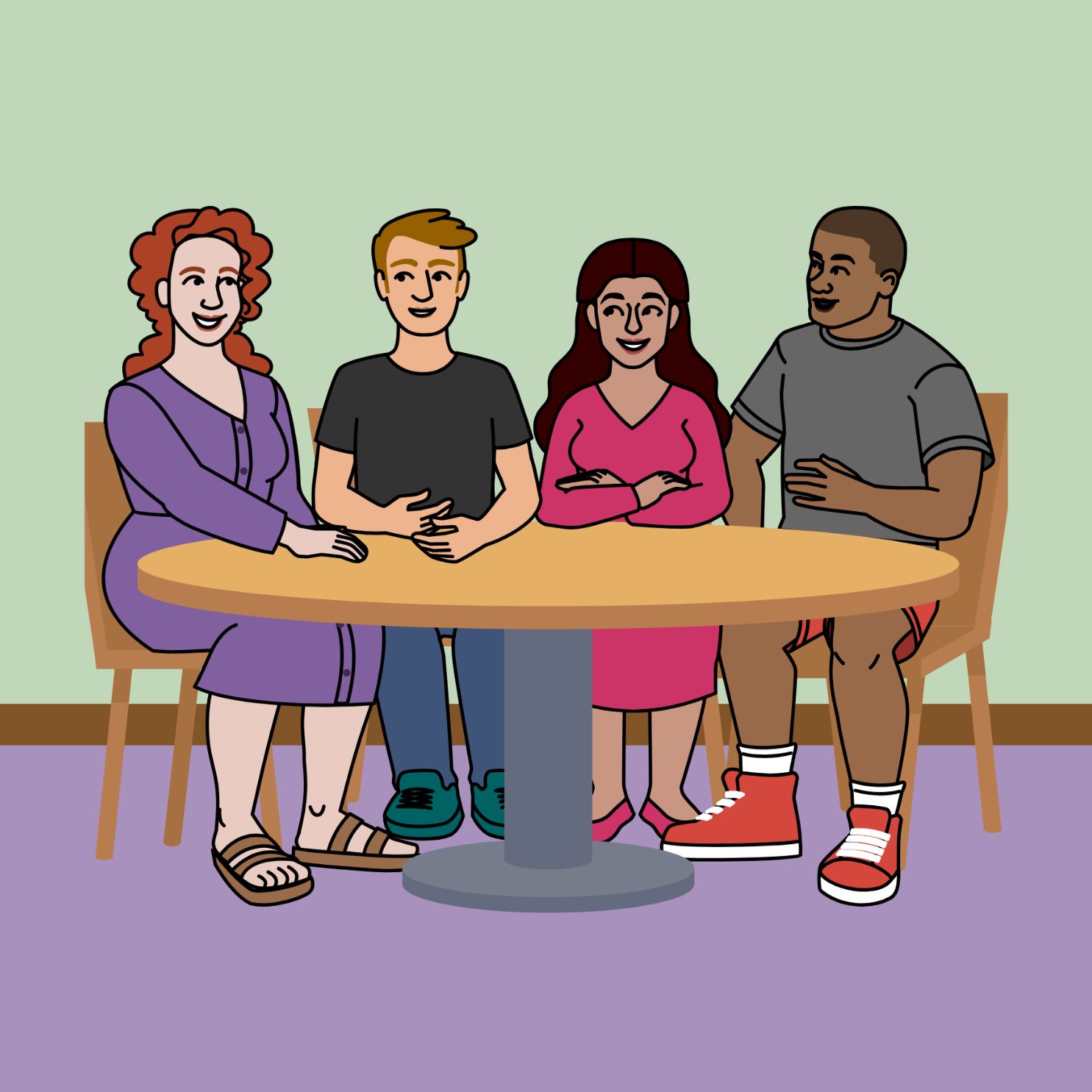
Meeting new people is the best way to find someone you have romantic feelings for and want to ask on a date.
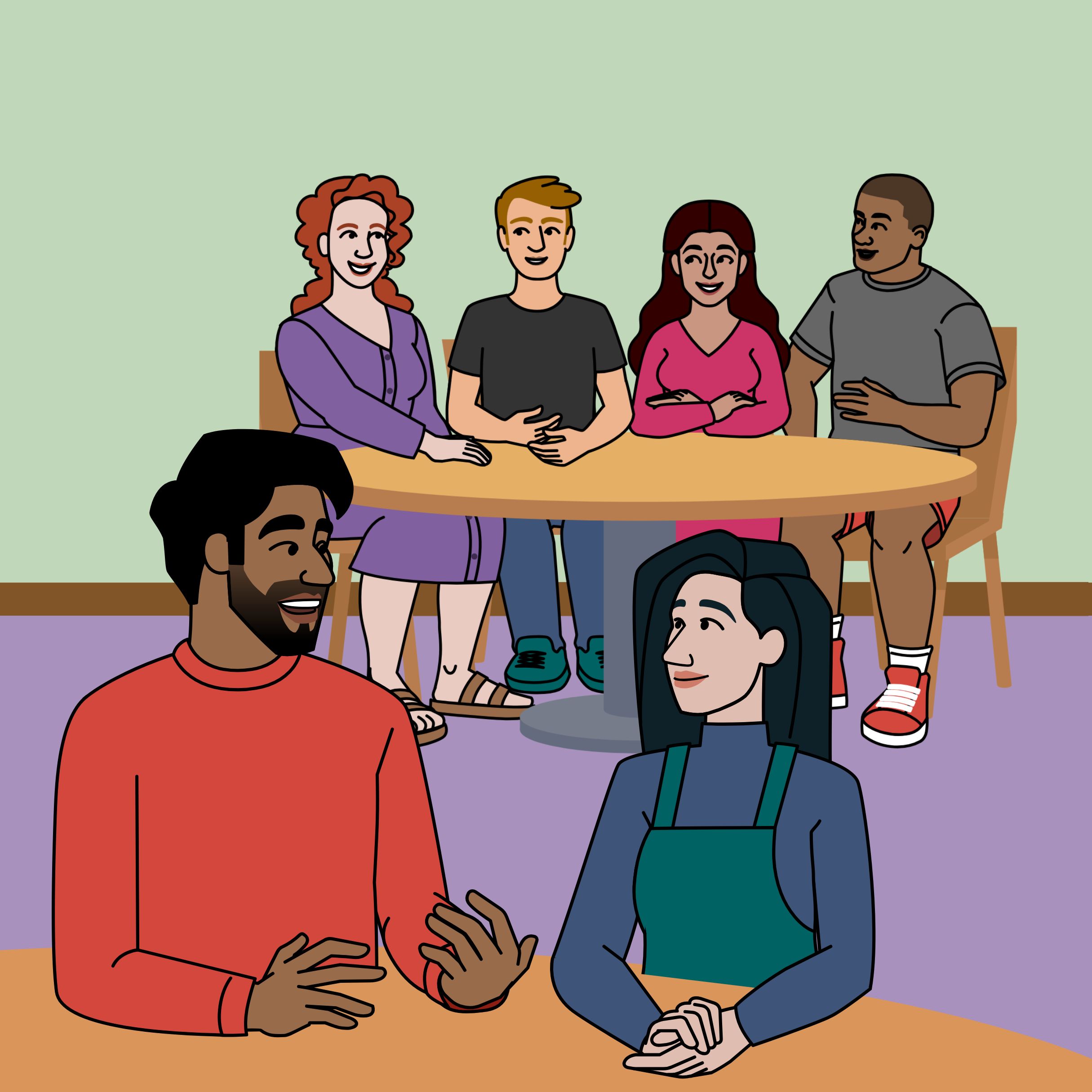
Some people go to social groups to meet new people.
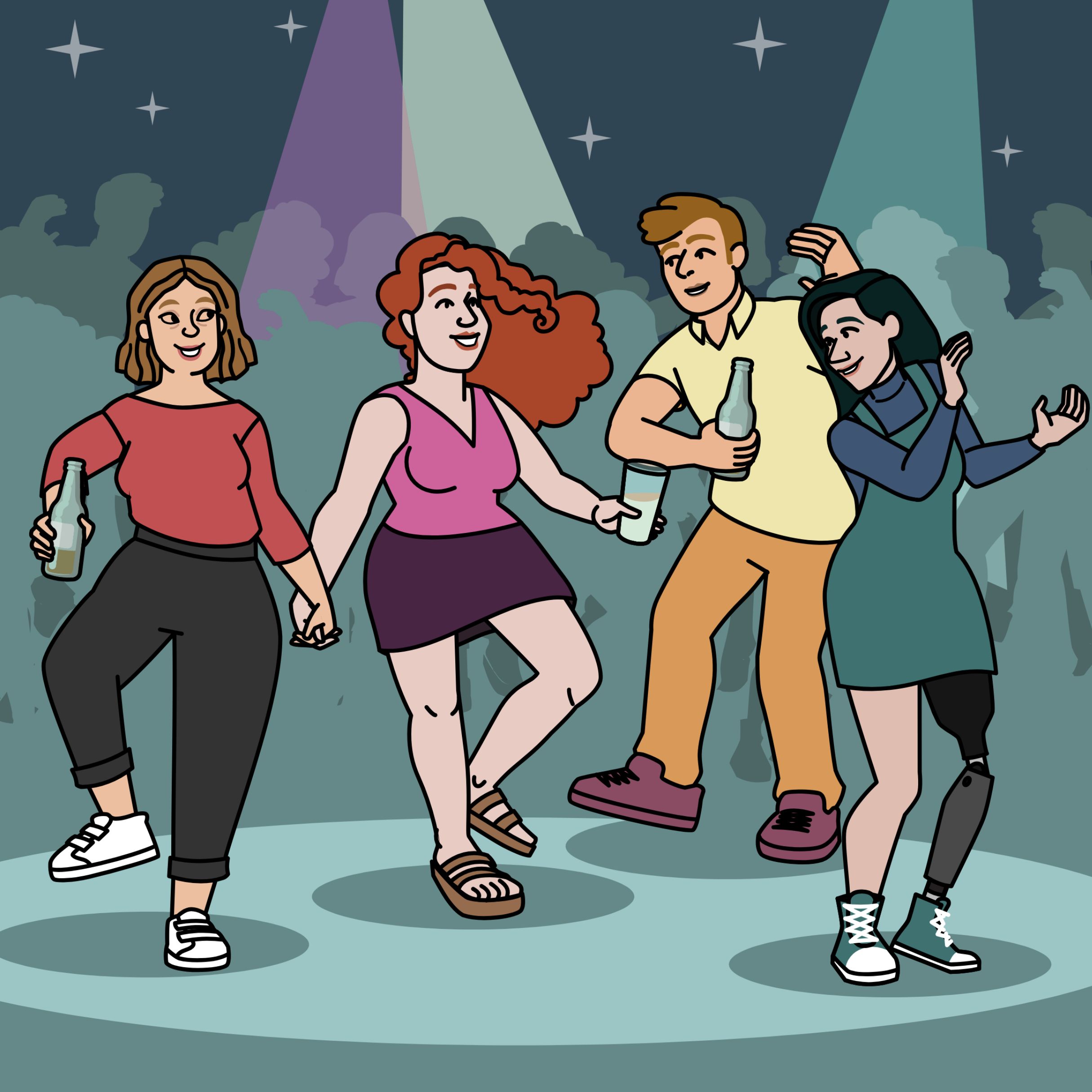
Some services for people with disabilities hold regular discos and dating events.
These events can be a fun and safe way to meet new people.
Get2gether organises social activities for people with disabilities in Edinburgh and the Lothians.
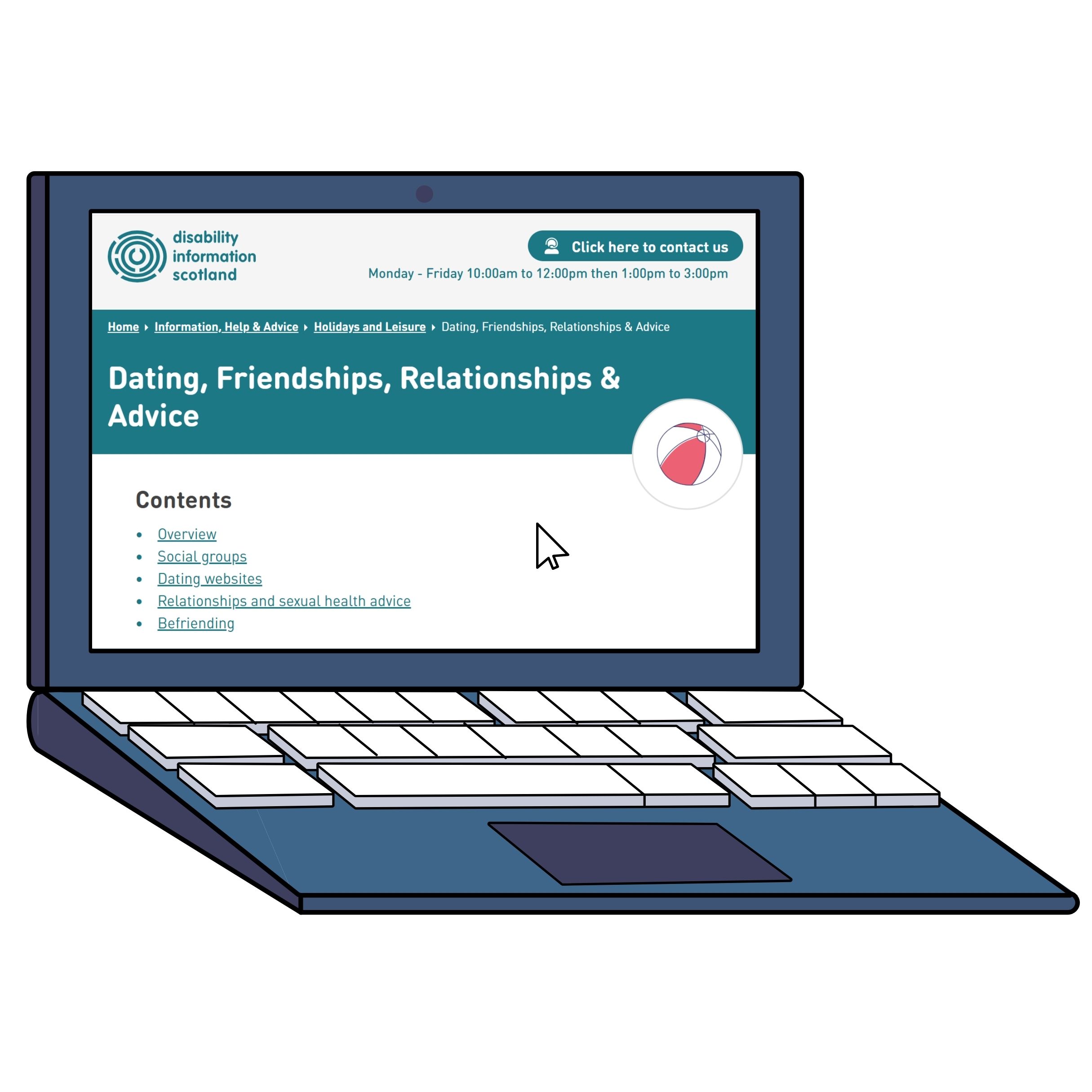
If you live outside Lothian, Disability information Scotland has information about social groups and dating events here.
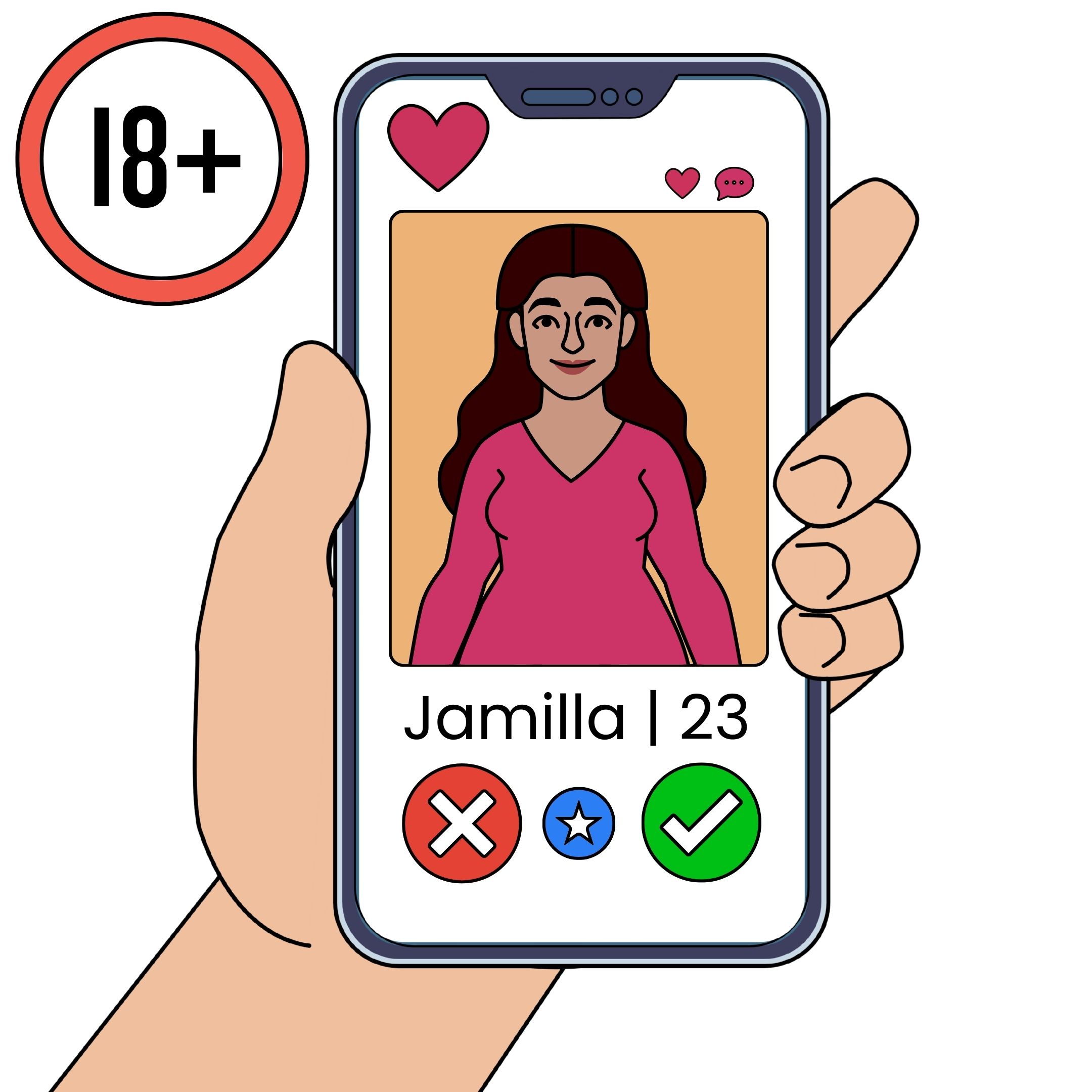
Adults who are 18 years and older are allowed to use dating apps or websites to meet new people to date.
It is important to be safe when using the internet to meet people.
Read about safe online dating on the Choice Support website.

Scroll down to learn about how to ask someone on a date.
Asking someone on a date

If you feel attracted to someone and would like to be in a romantic relationship with them, you can ask them on a date.
To ask someone on a date, you could say “would you like to go on a date with me?”

You might want to practice how you will ask someone on a date with a trusted adult.
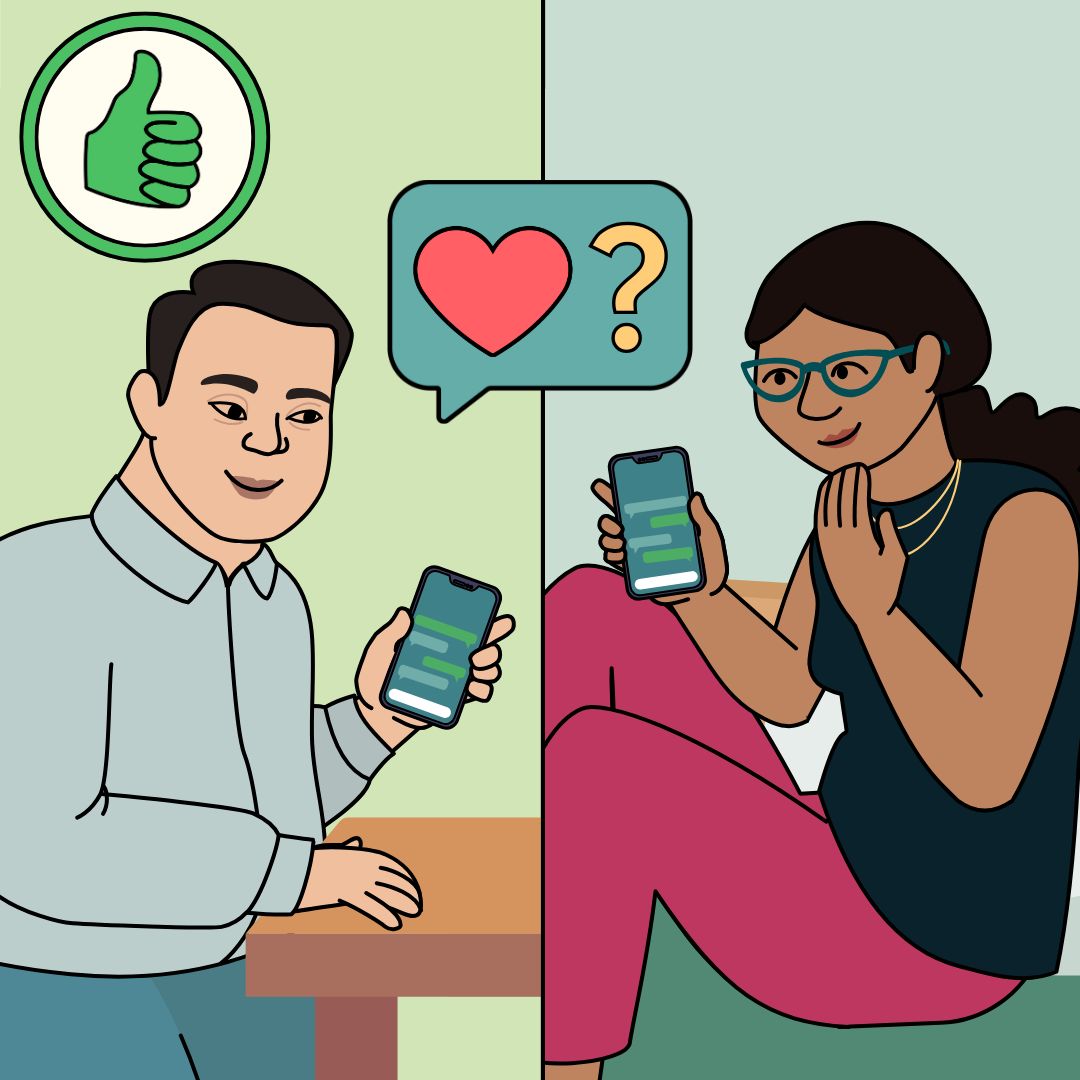
If they have shared their phone number with you, or you are friends on social media, it is OK to send them a private message to ask them on a date.
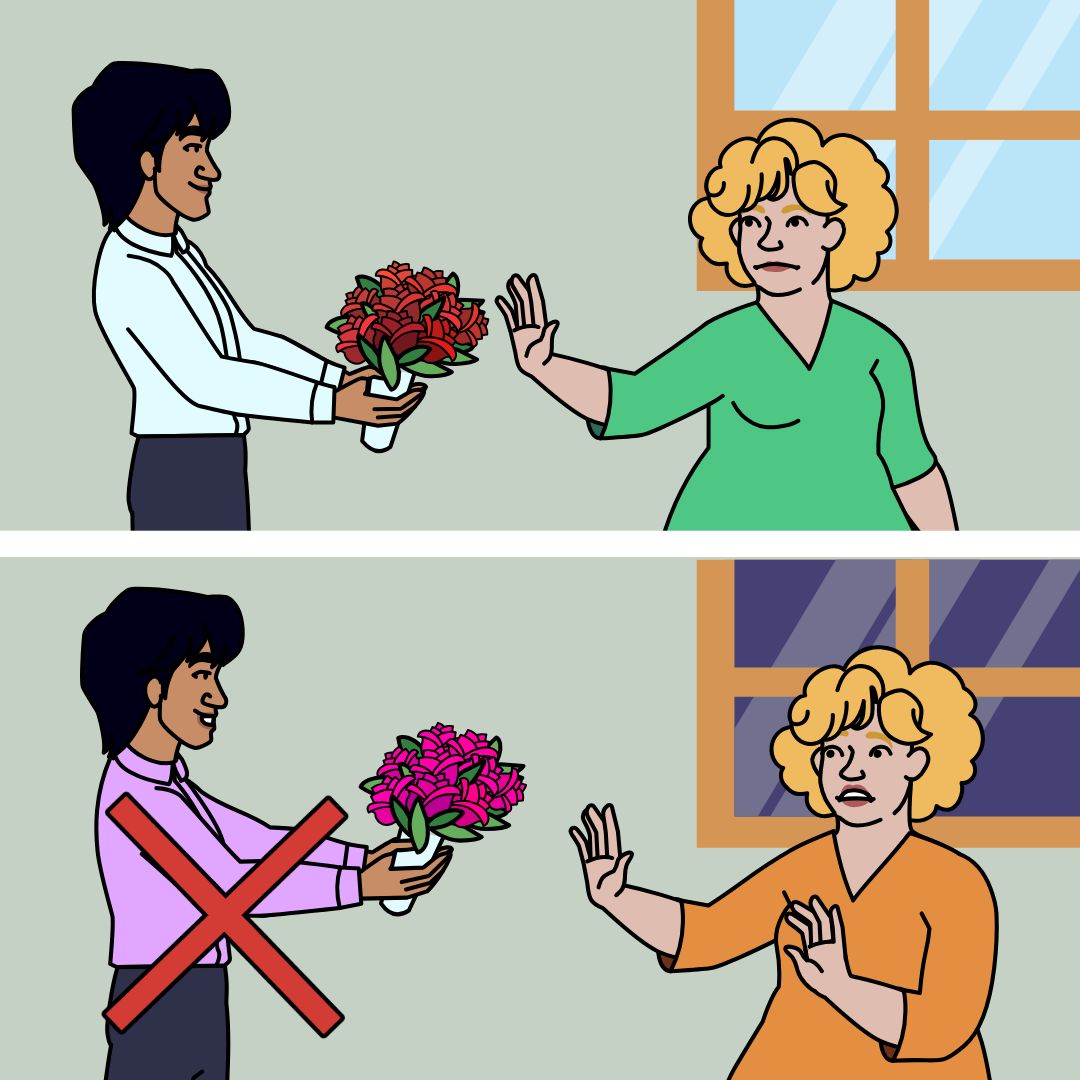
If they say no, you should not ask them on a date again, or try to change their mind.
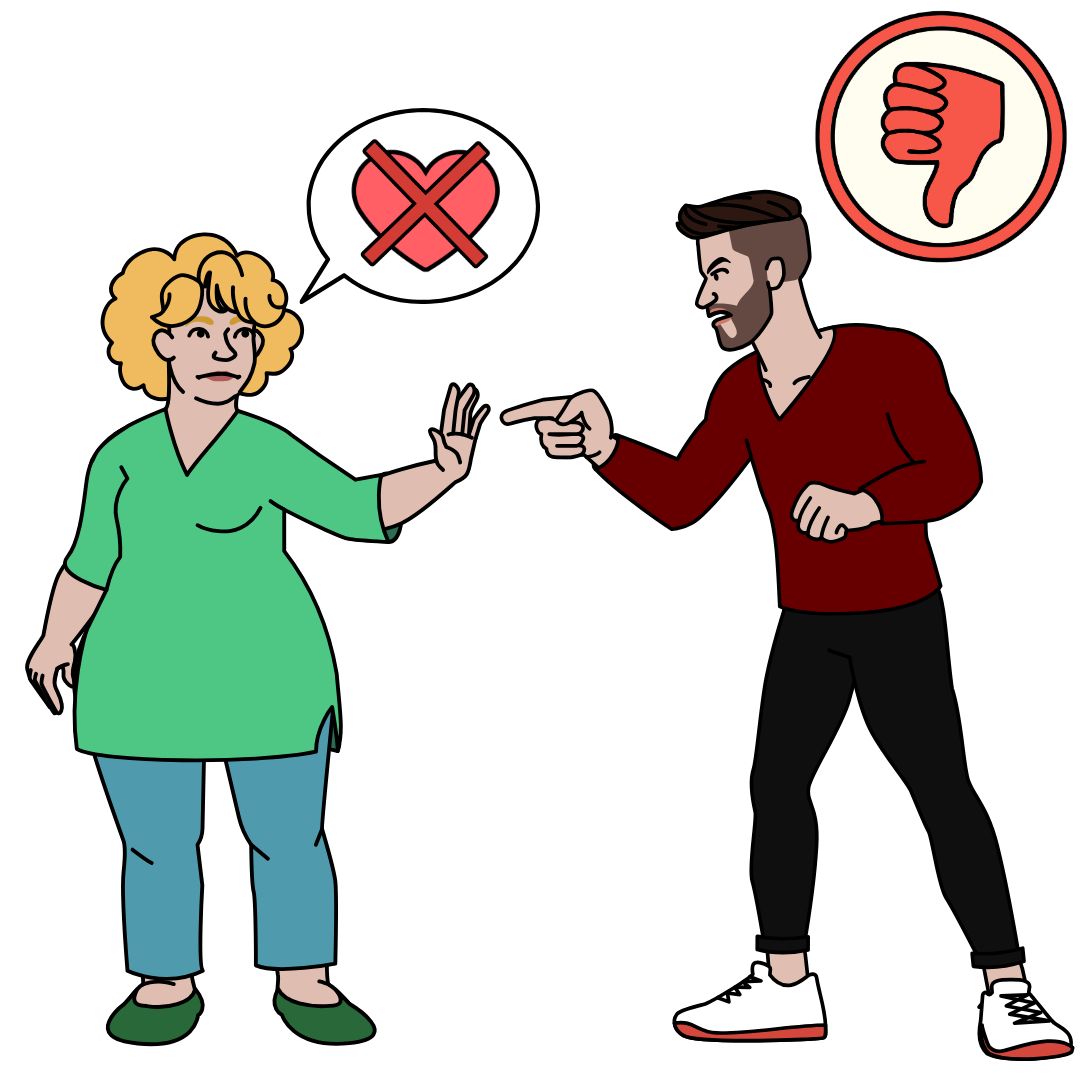
It is not okay to be rude or mean to someone because they said no to a date.
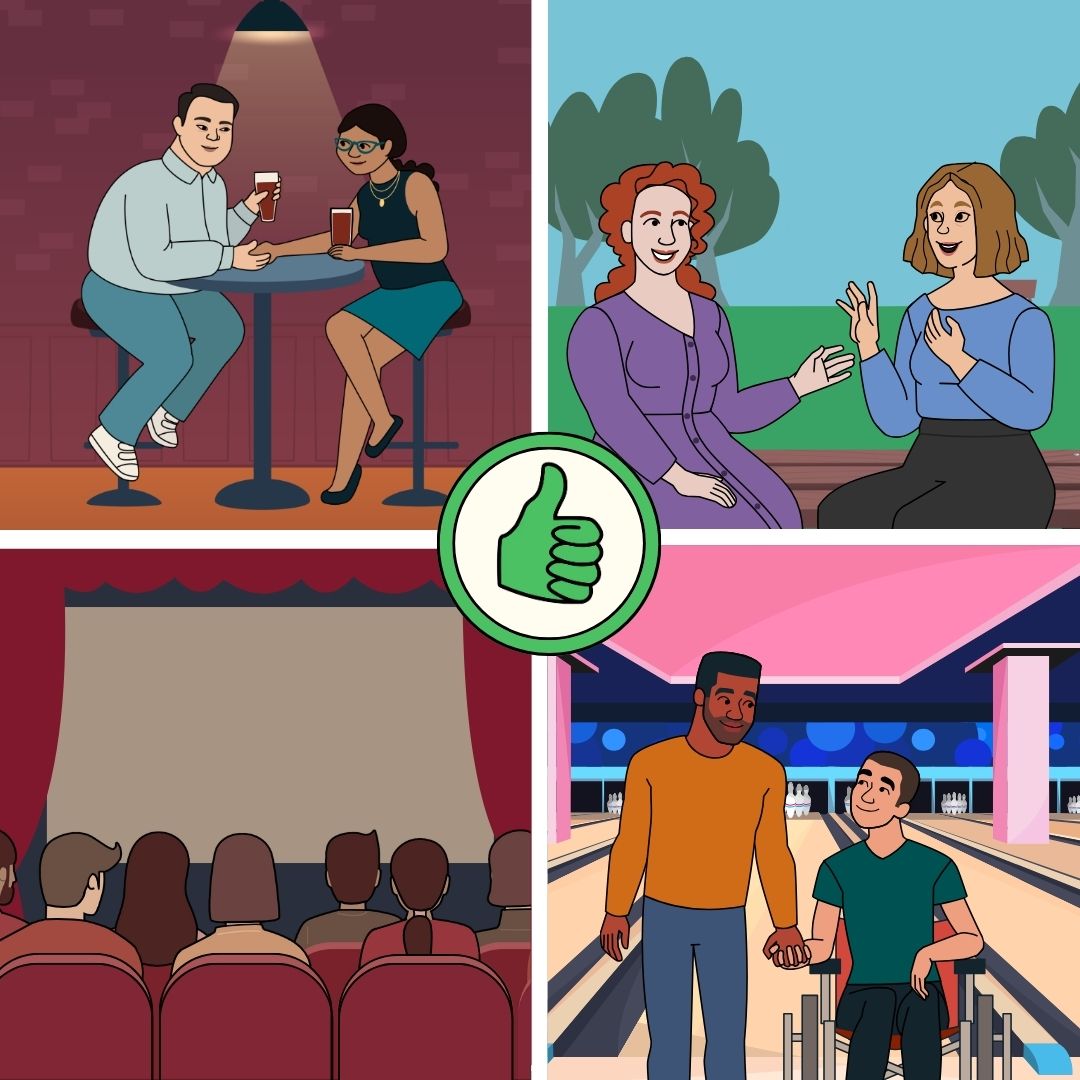
If they say yes, it is time to plan your date.
It is best to have a date in a place you both feel comfortable and safe.
A first date could be an activity like:
- Going out for a meal or coffee
- Going to the park
- Going to a movie
- Going bowling or playing minigolf
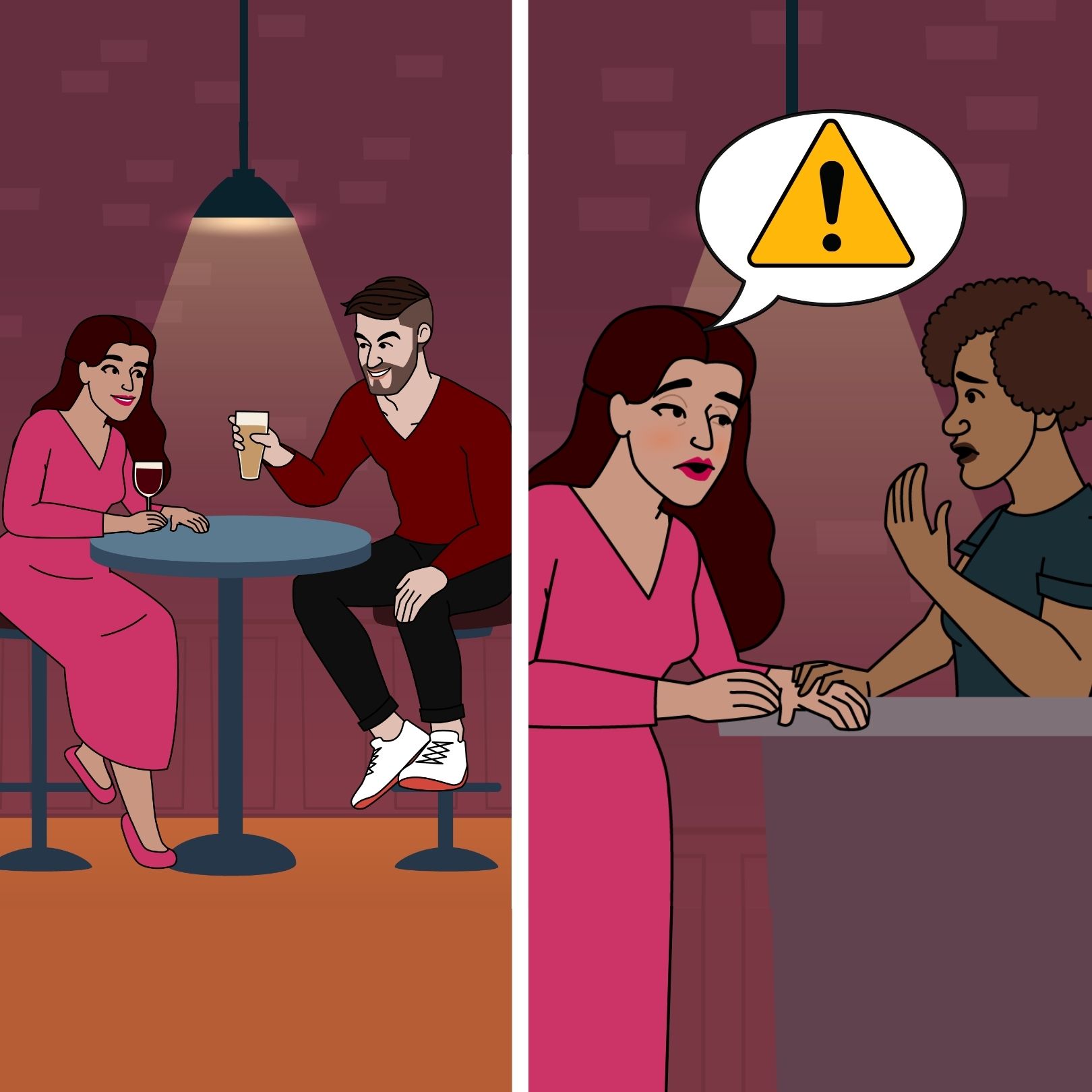
It is best to have a first date in a public place, so you can ask for help if you need it.
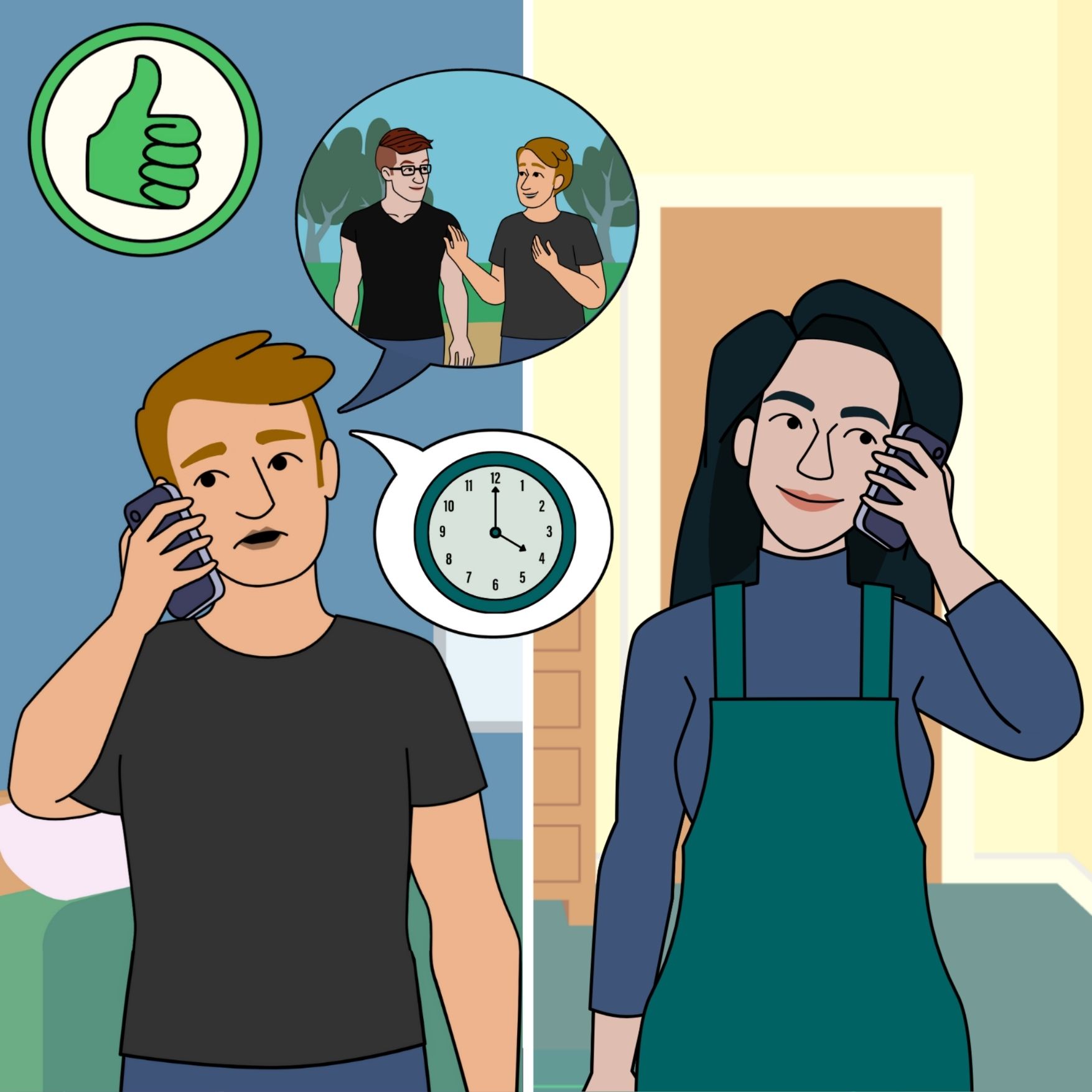
Always tell a trusted adult or friend where you are going on your date and when you will be home.
Tell them when you get home from your date so they know you are safe.
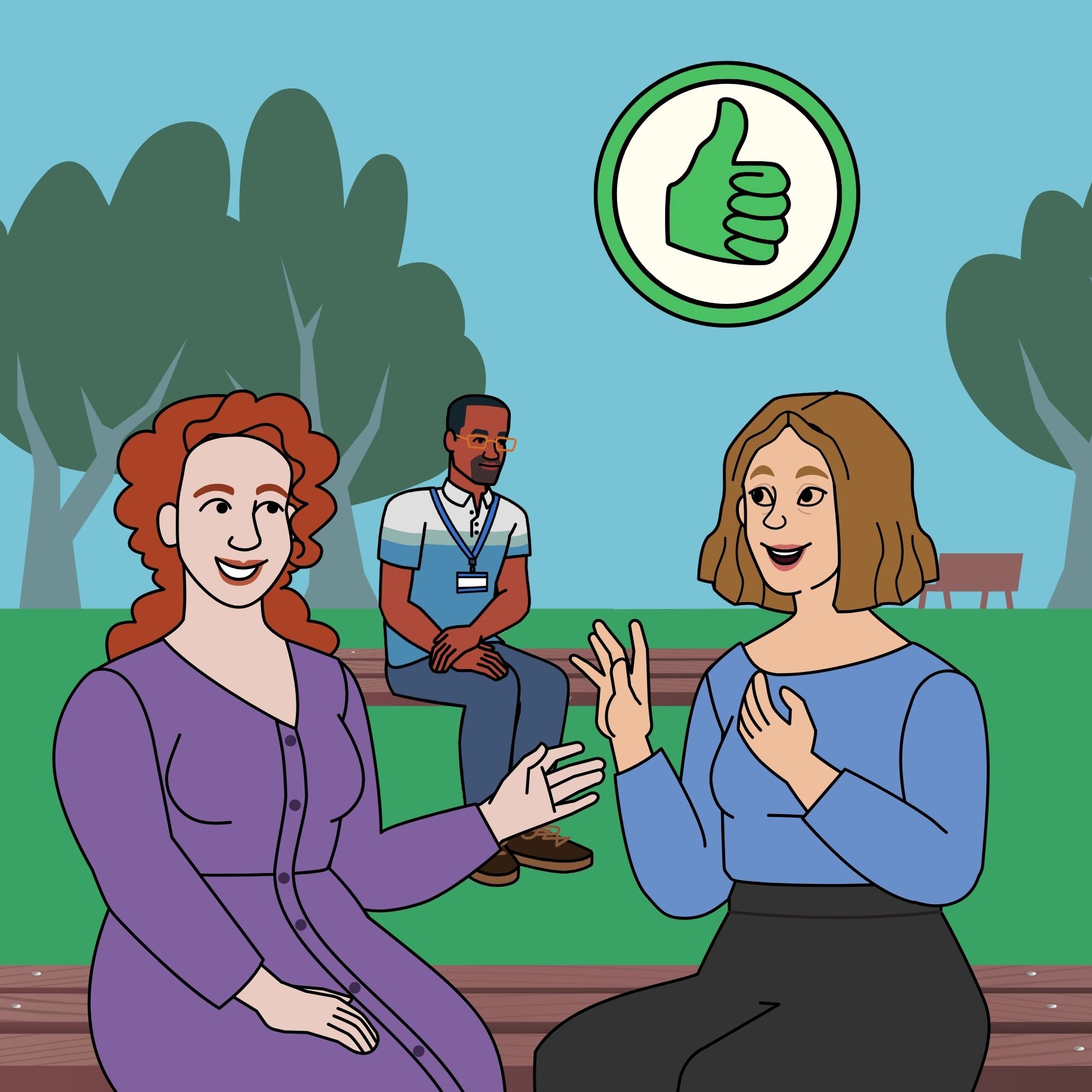
You might want to ask a trusted adult or support worker to come with you on your date as a ‘chaperone’.
A chaperone waits close by on a date in case you need help.

Scroll down to learn about going on a date.
Going on a date
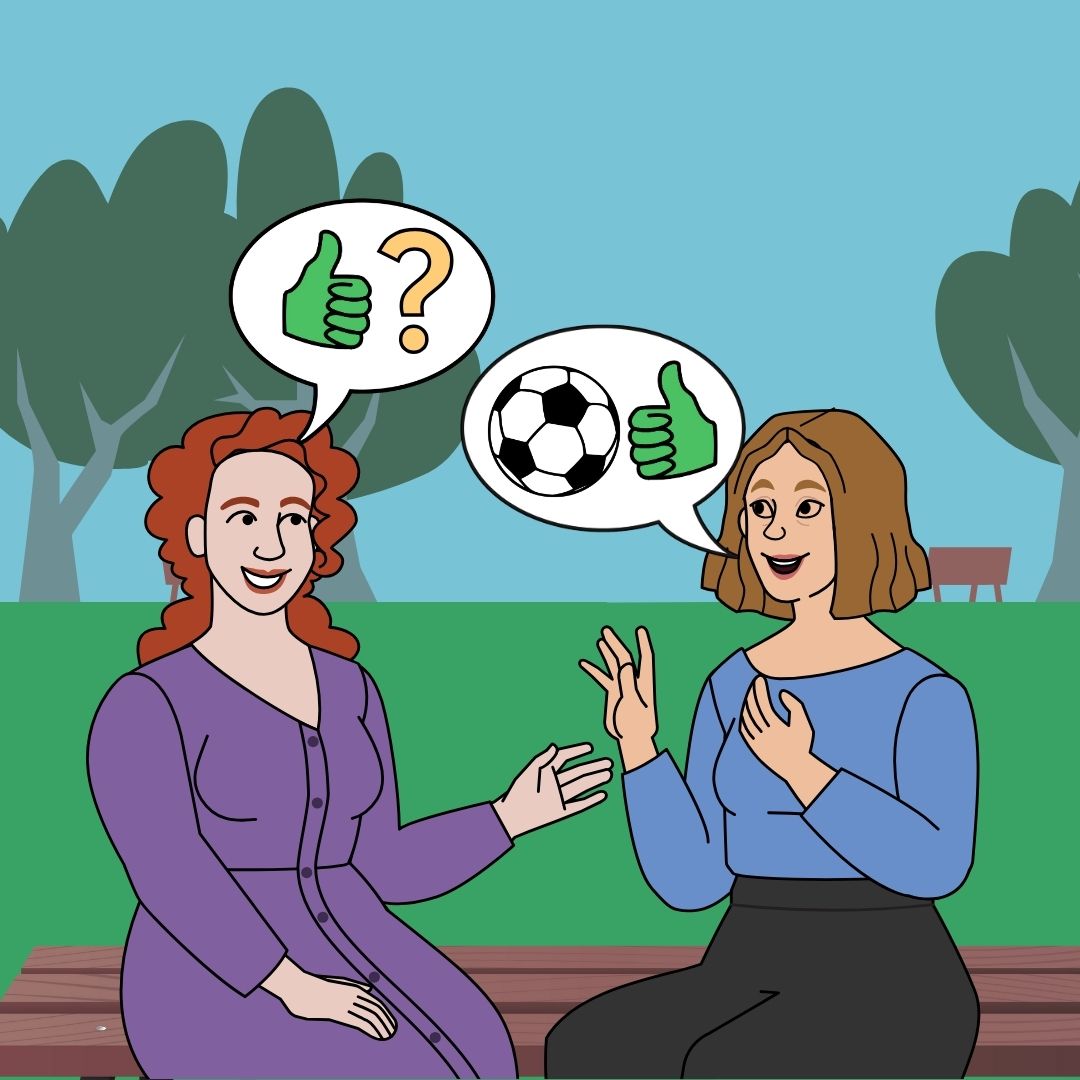
A date is for getting to know your date better.
You learn more about your date by asking them questions about the things they like.
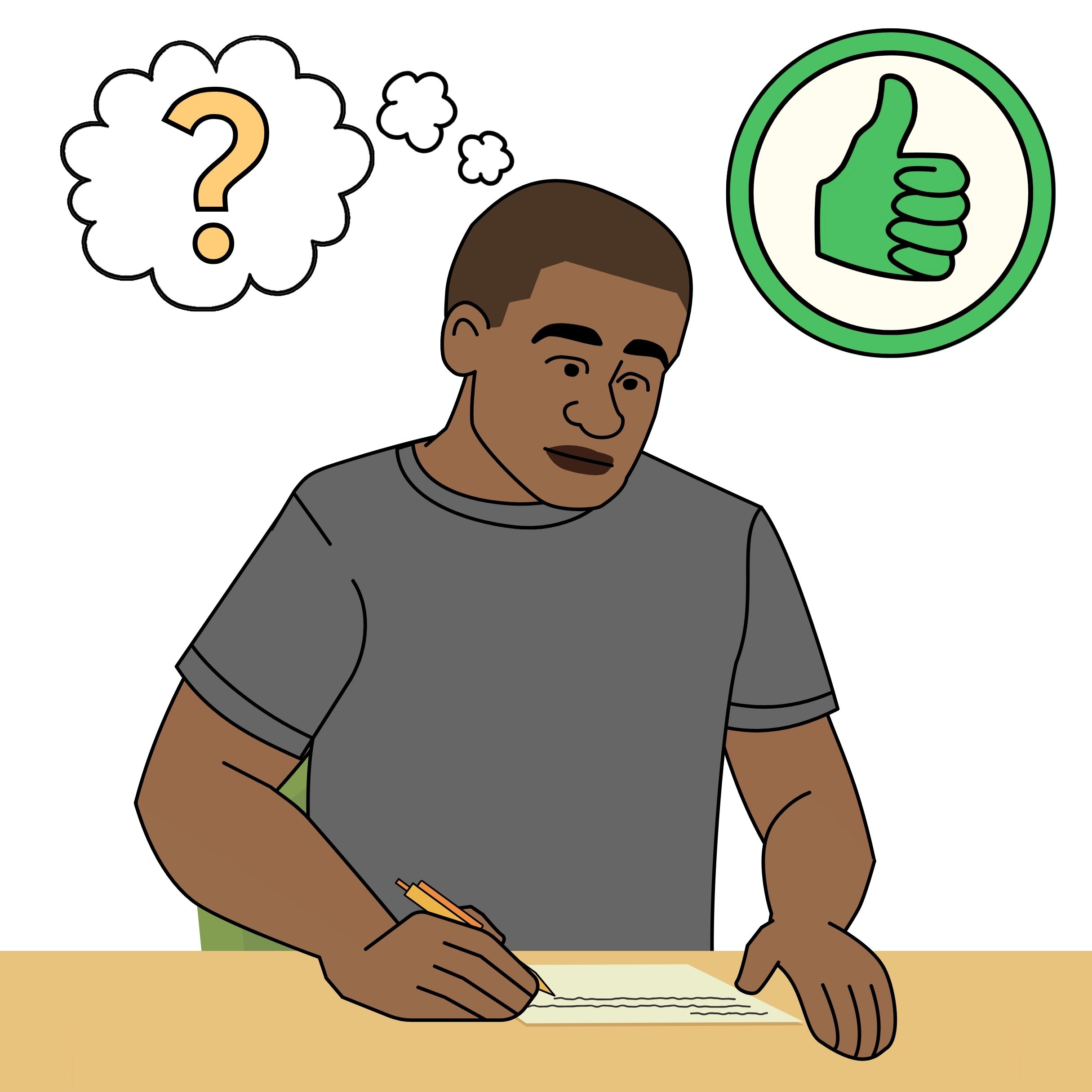
It can help to write down or practice asking the questions you will ask before your date.

You can ask your date about things like:
- Hobbies or activities
- Movies and tv
- Music
- Family
- Their goals
- What is important to them
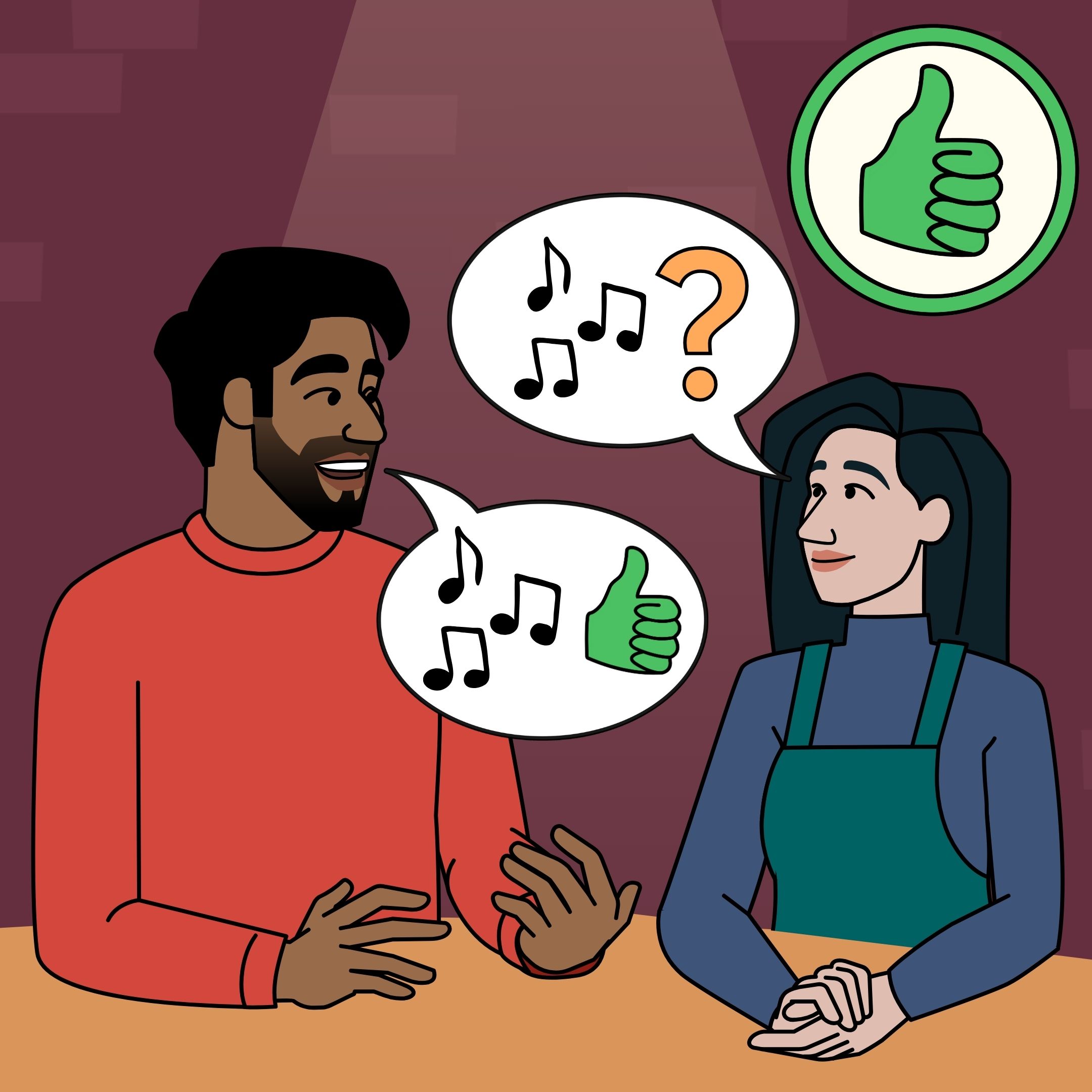
Asking your date questions and listening to what they have to say shows you care about them.
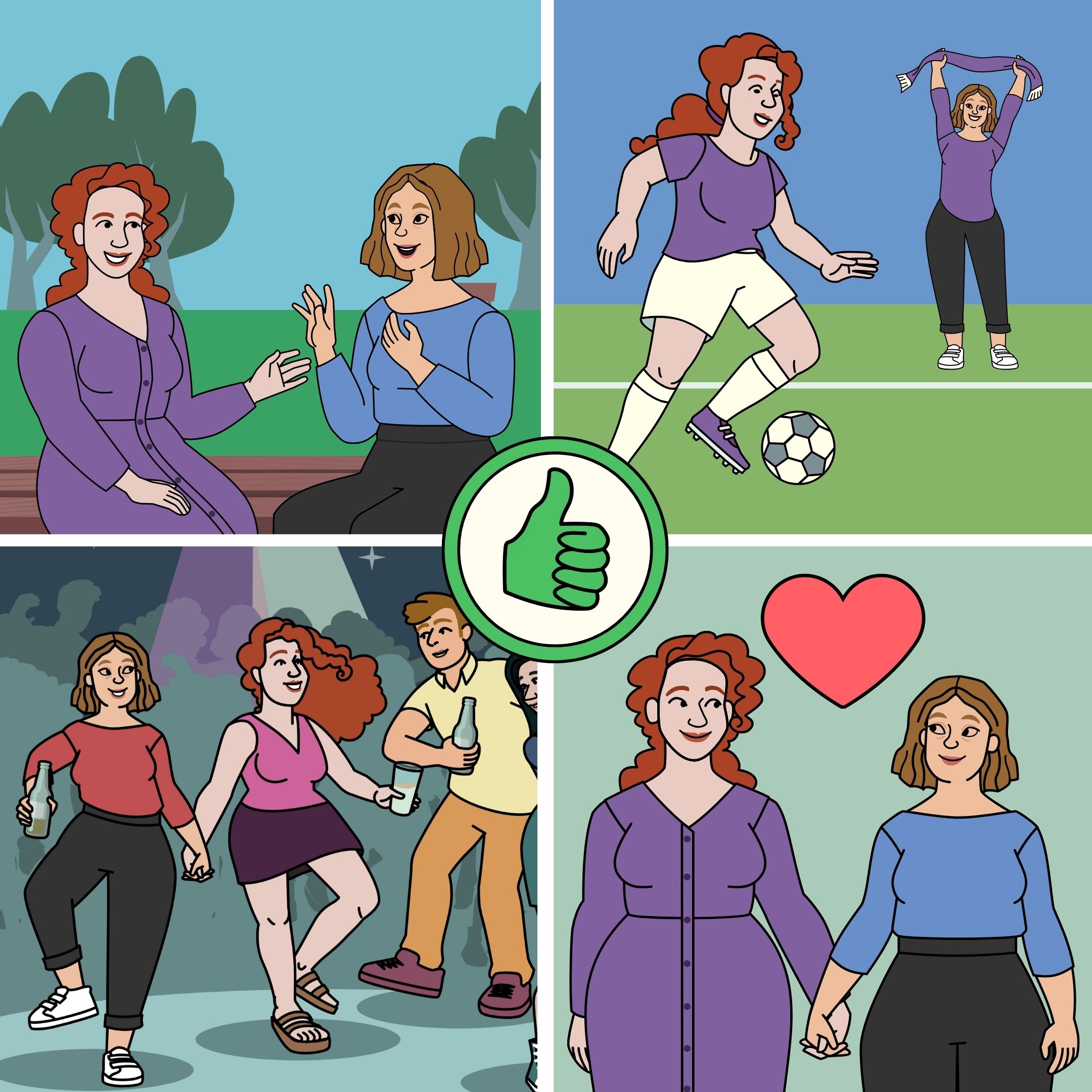
It is best to go on a few dates with someone before deciding if you want to be in a romantic relationship with them.
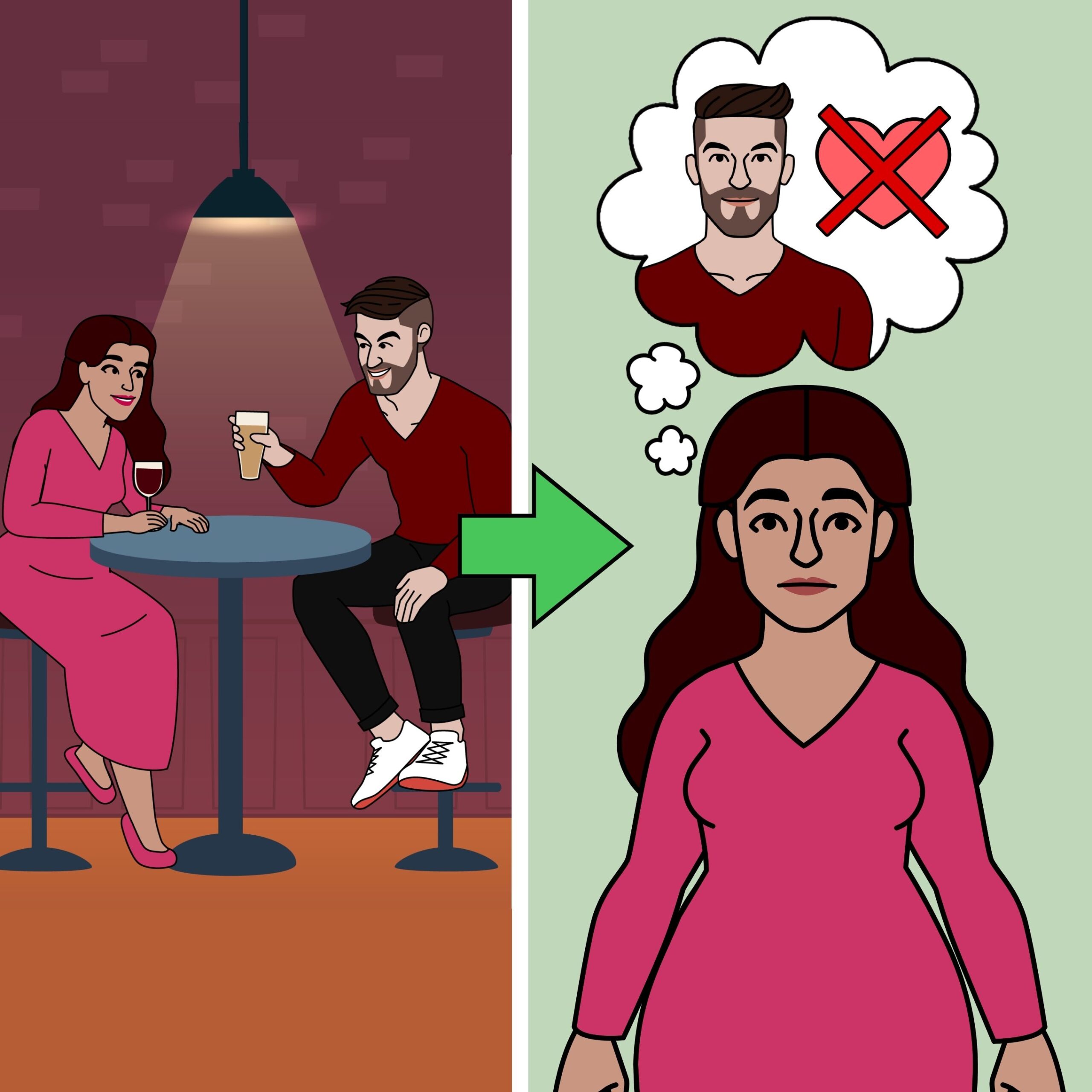
After spending time with them, you or your date might decide you do not want to have a romantic relationship with each other.
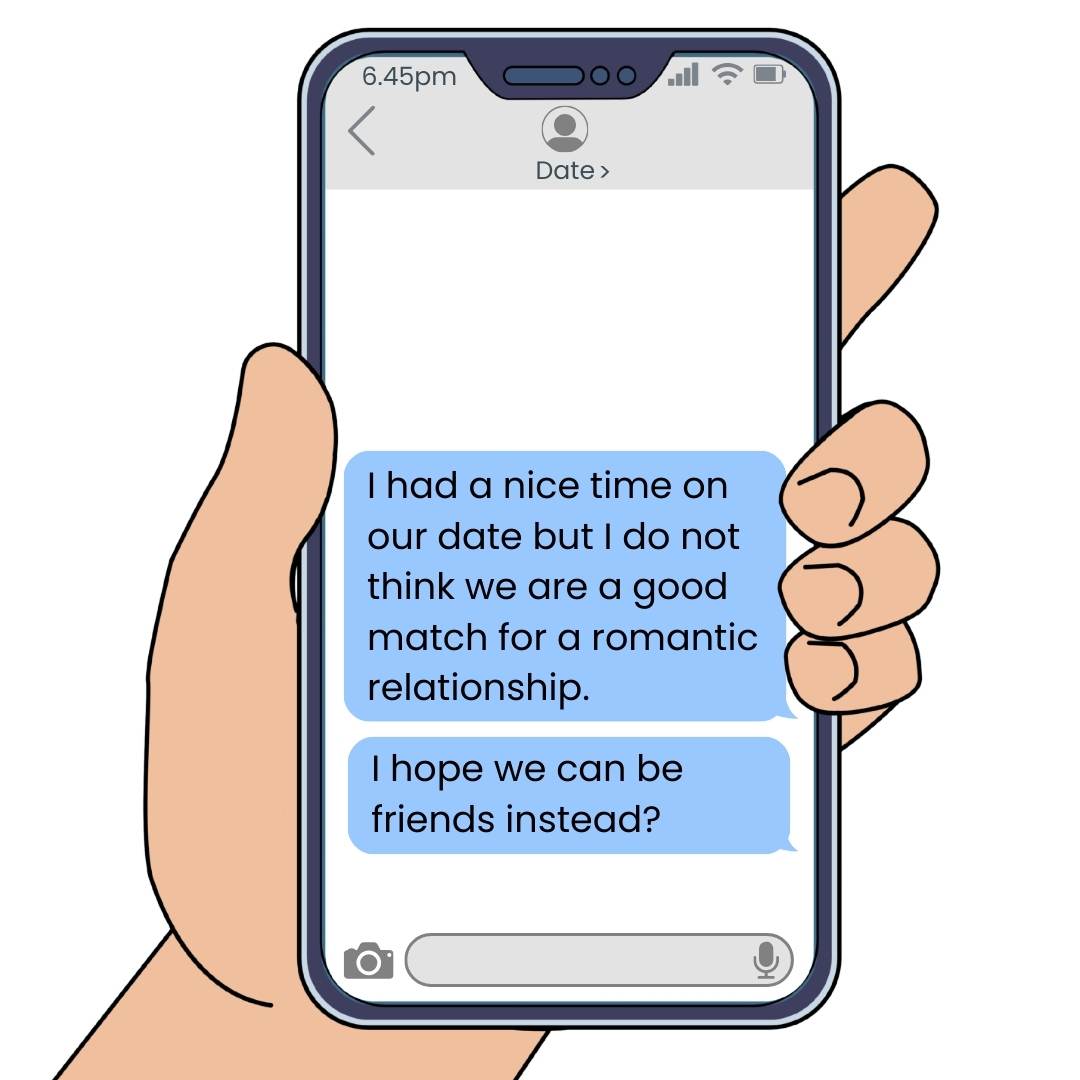
If you feel this way you can say “I had a nice time on our date but I do not think we are a good match for a romantic relationship.”
If you want to, you can also say “I hope we can be friends instead?”

You should only start a romantic relationship with someone who makes you feel safe, happy, and listened to.
Learn more about healthy romantic relationships.

Scroll down to learn about romantic touching.
Romantic touching
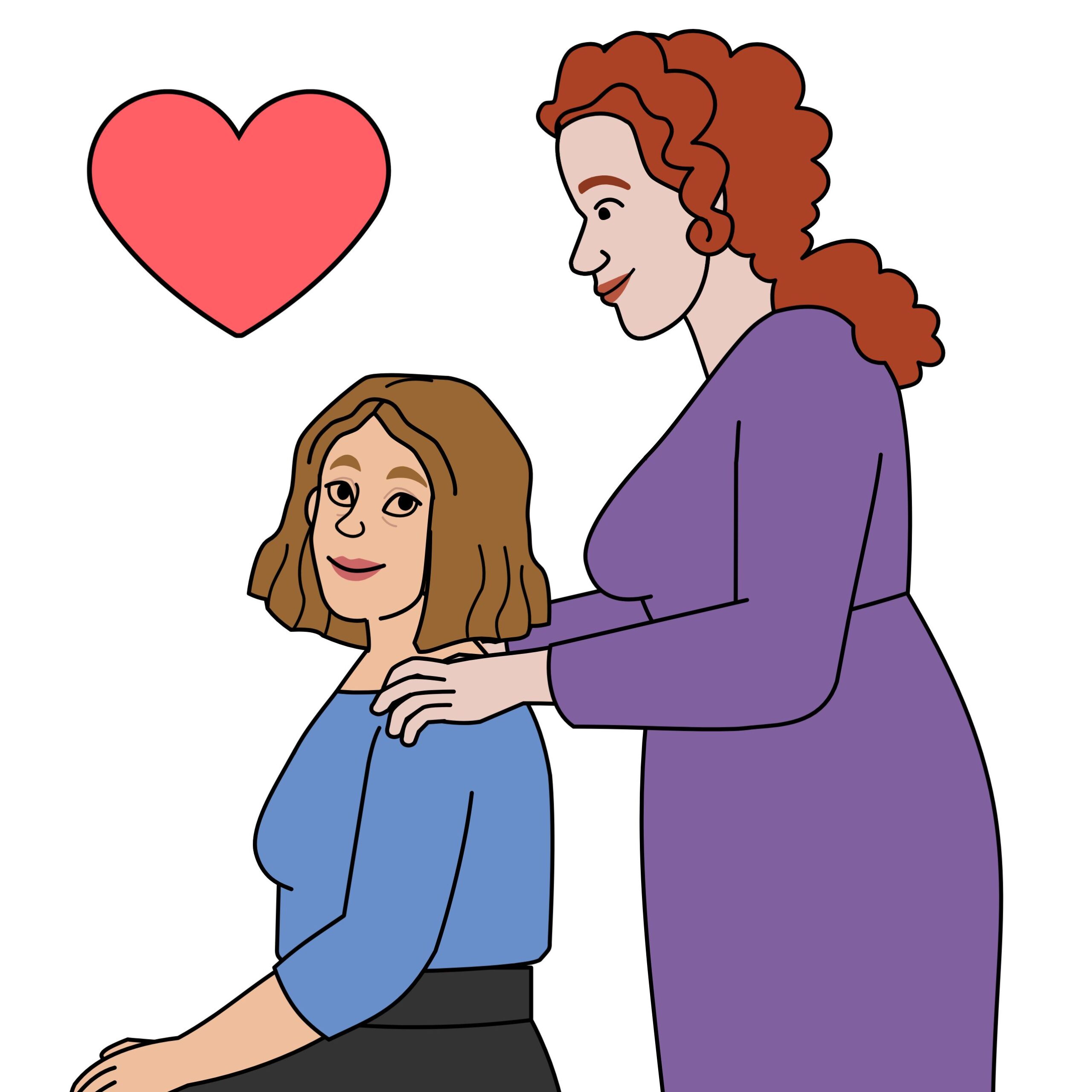
Touching is part of dating and romantic relationships for some people.
For some people, touching a romantic partner can be a way to show love or feel close to their partner.
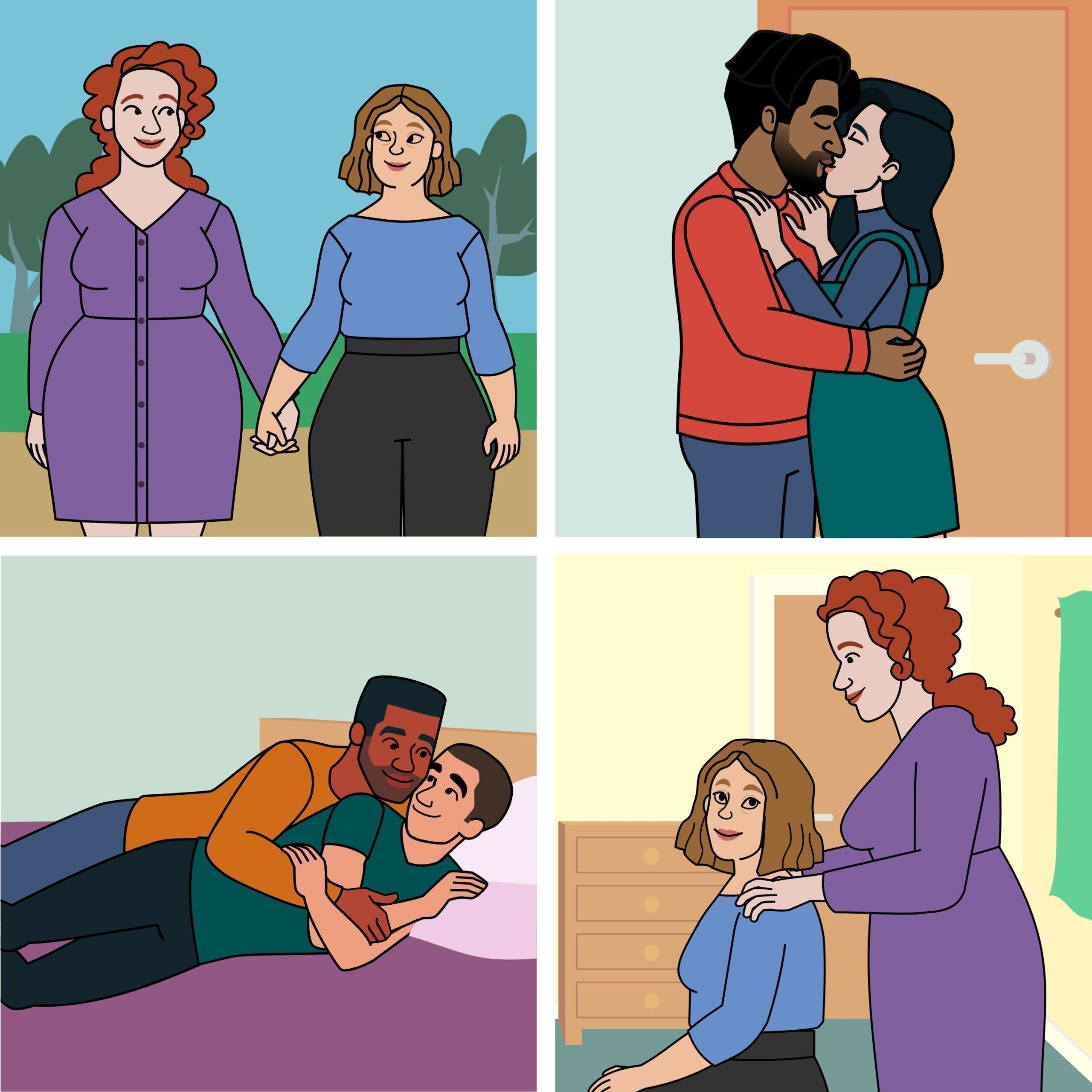
There are lots of different kinds of touching that someone might want to do with a romantic partner.
Some examples are:
- Holding hands
- Kissing
- Cuddling
- Massage
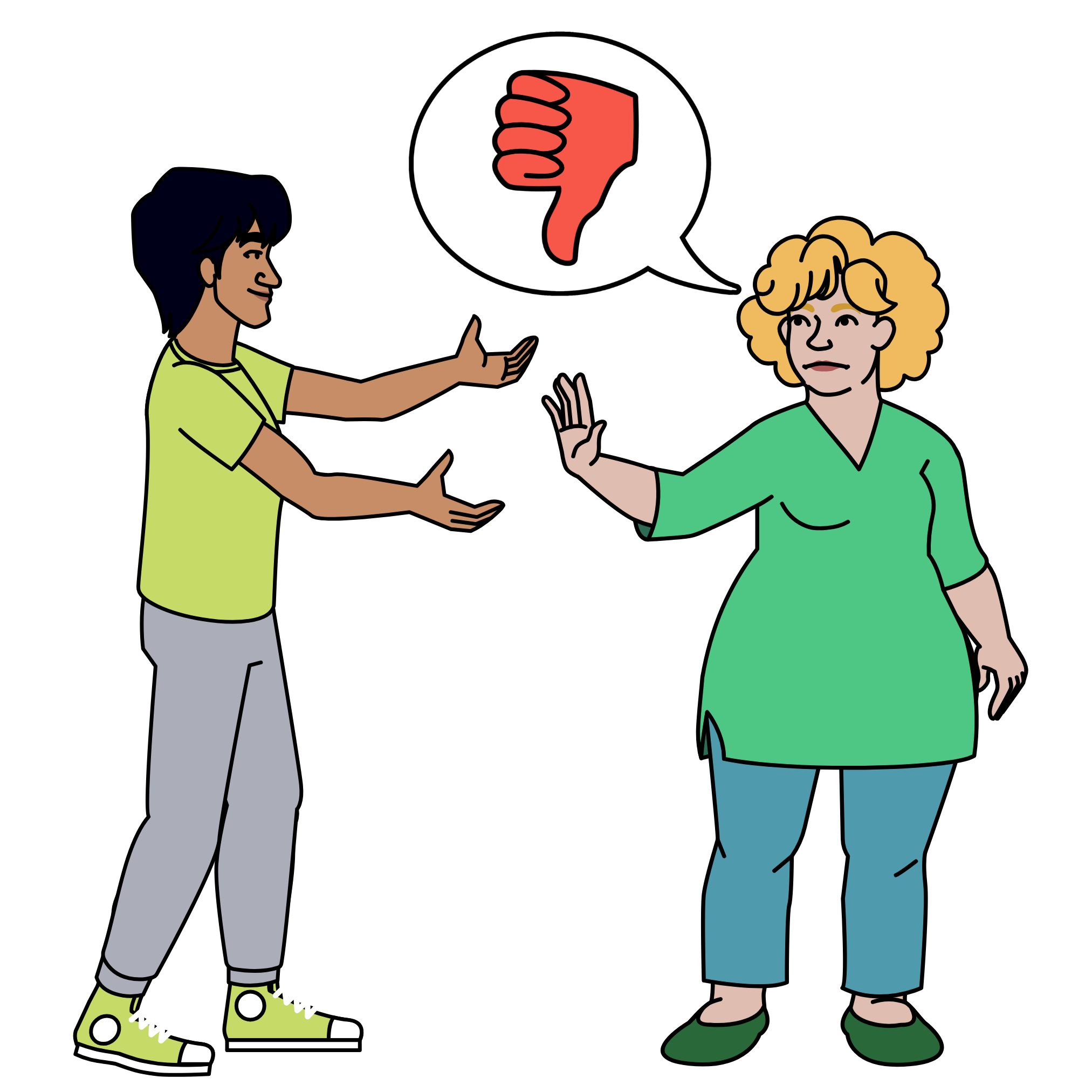
Every person has different feelings about being touched.
Some people do not want to be touched at all.
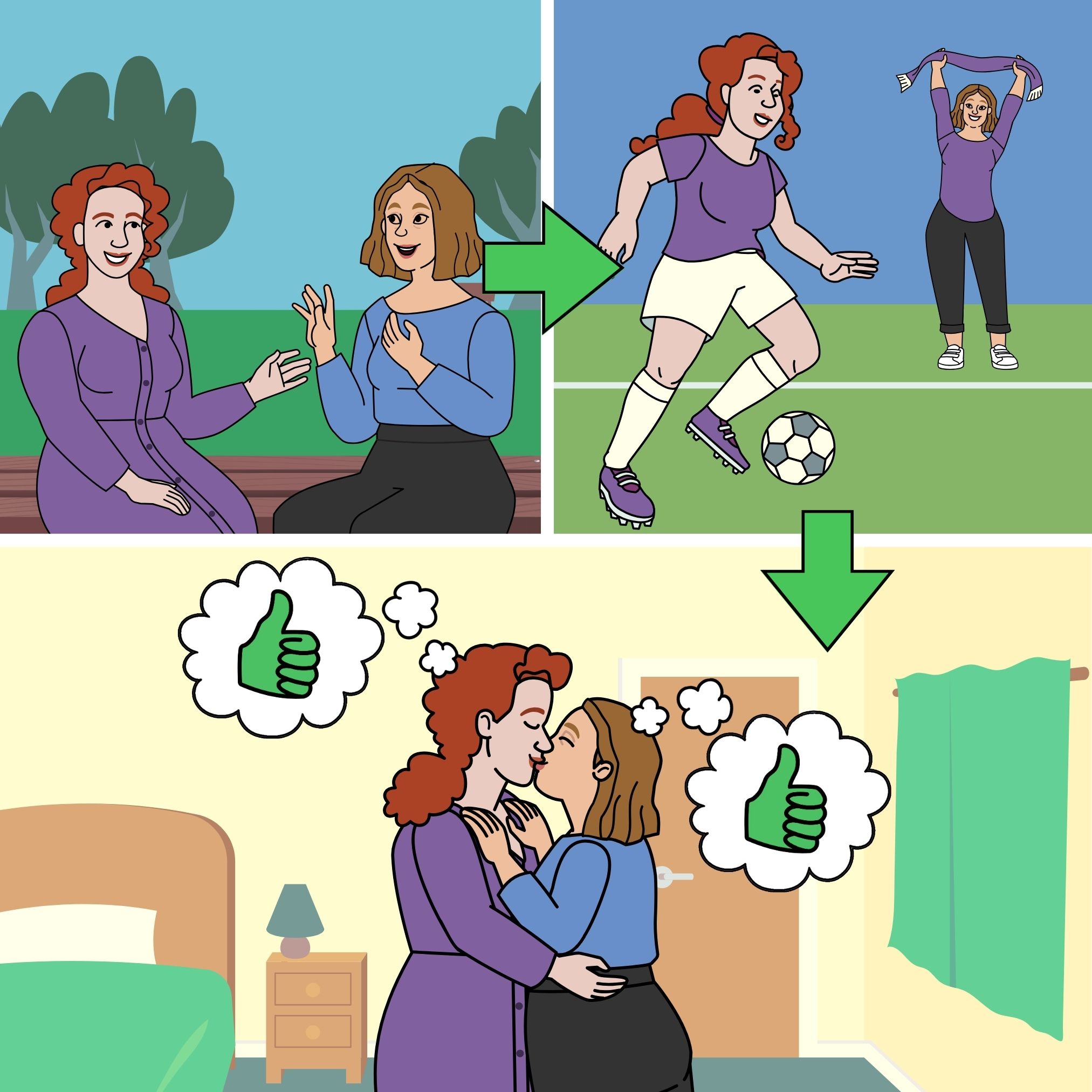
Some people like to be touched, but only when they know the person well.
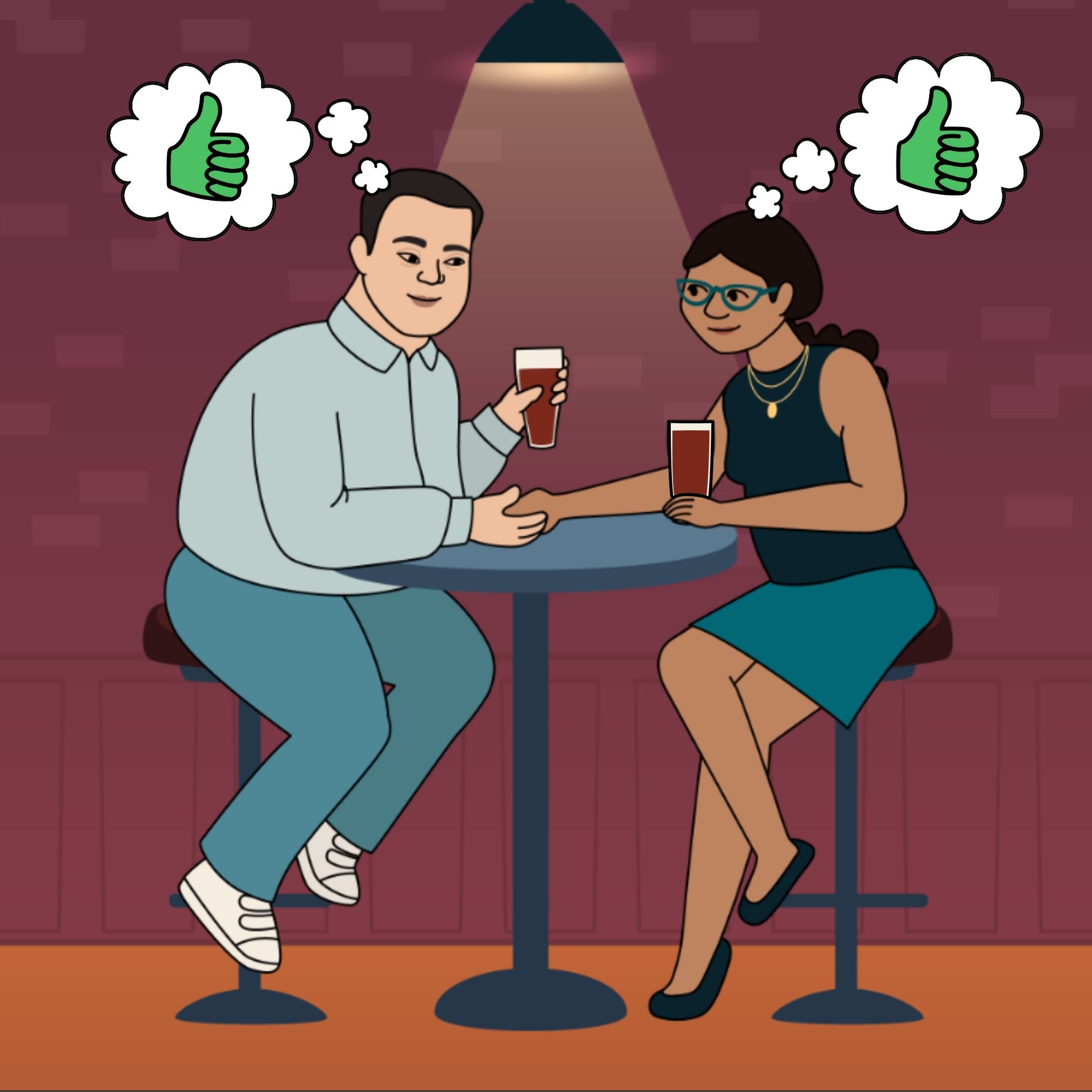
Some people like to touch on a first date.
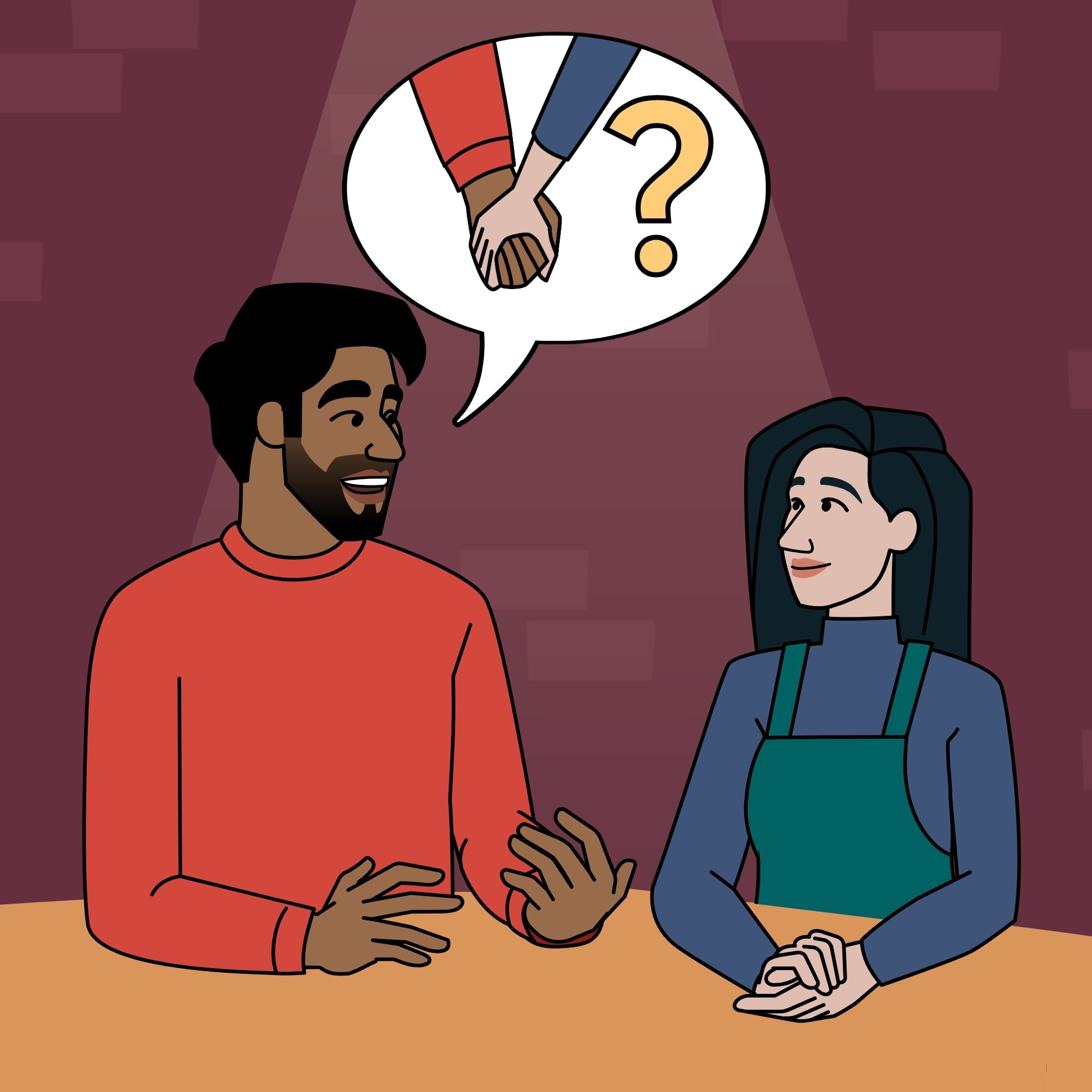
If you want to have romantic touch with someone you are dating, you need to ask them first.
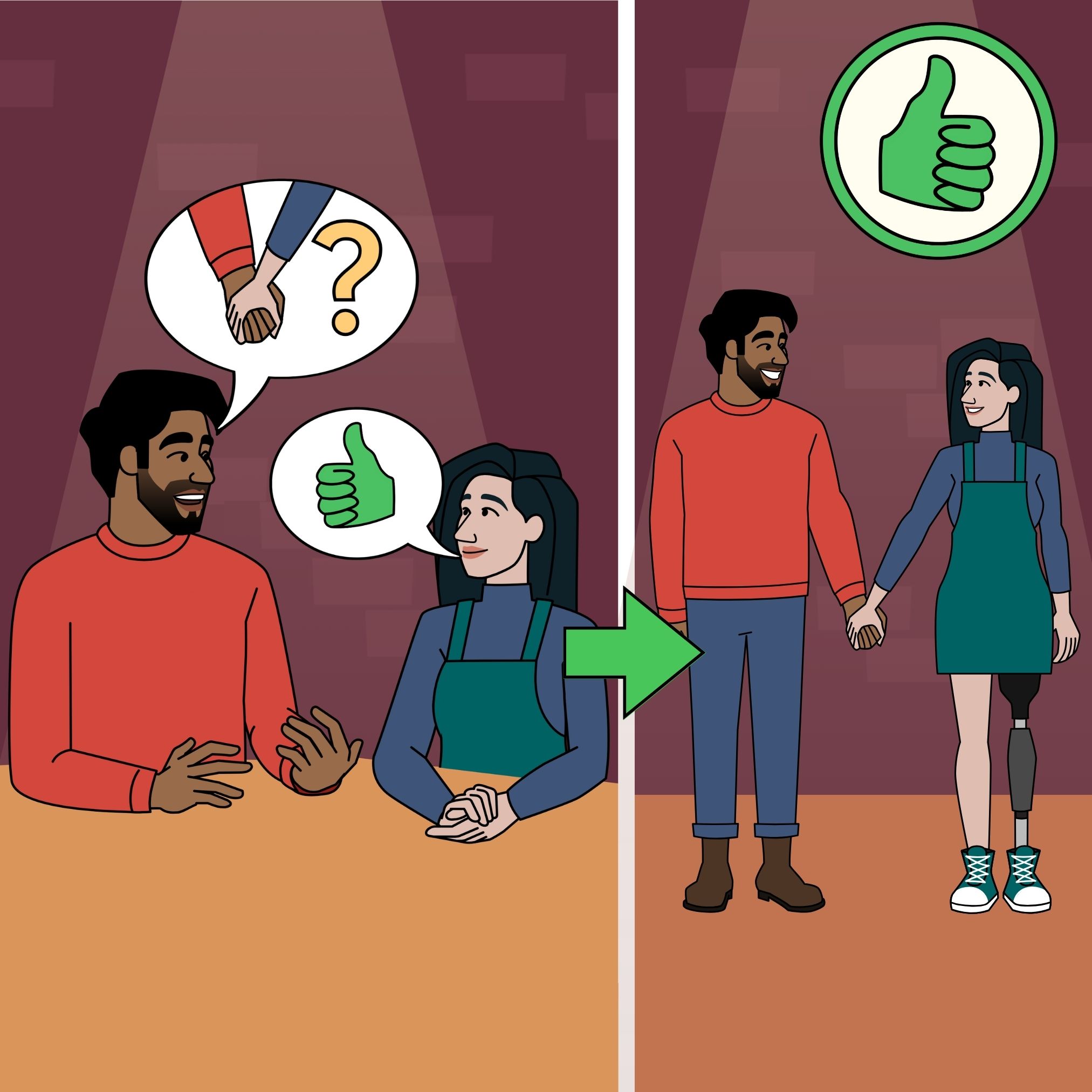
If they say yes to touching, it is OK to touch them. This is called consent.
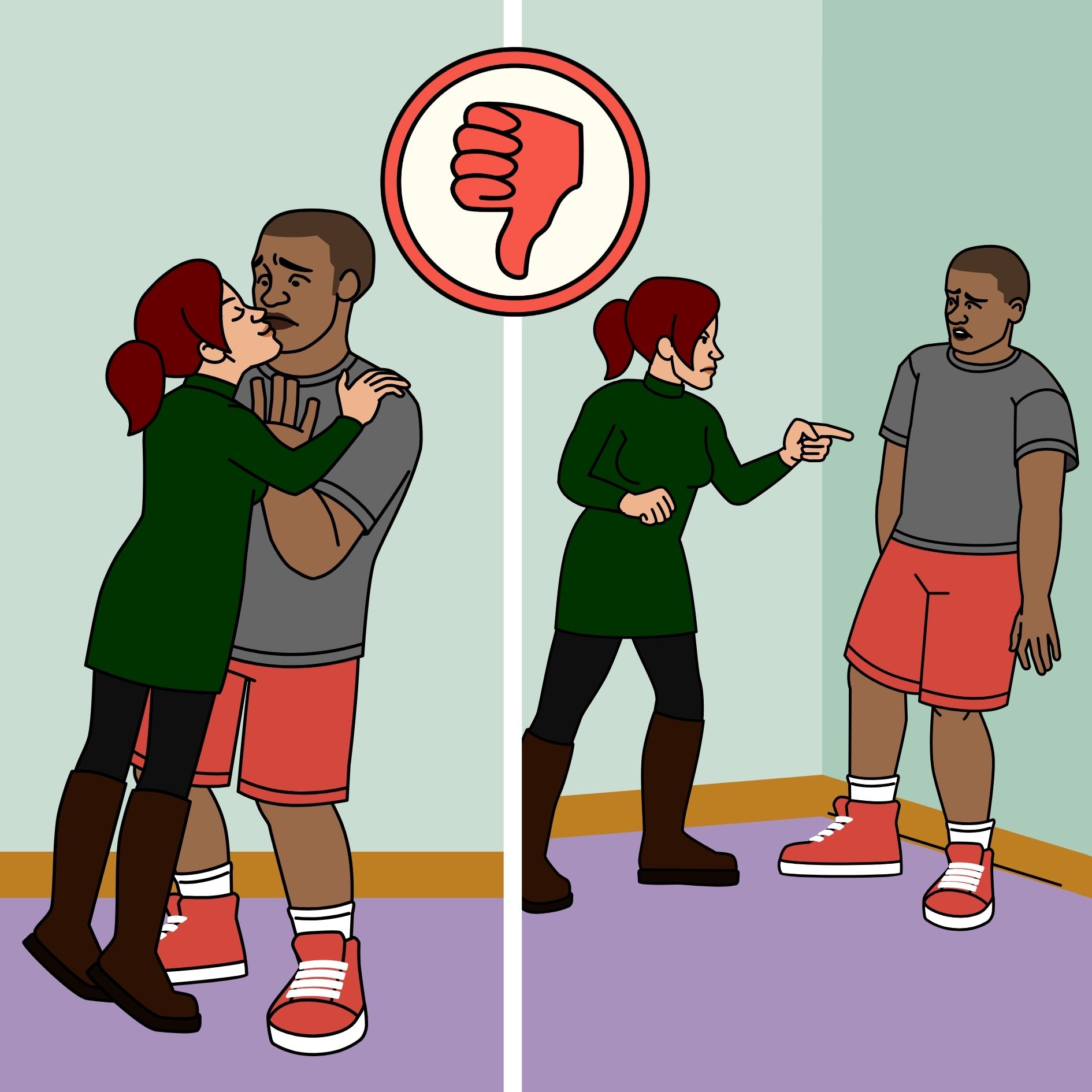
If they say no, do not:
- Touch them
- Be angry with them
- Try to change their mind
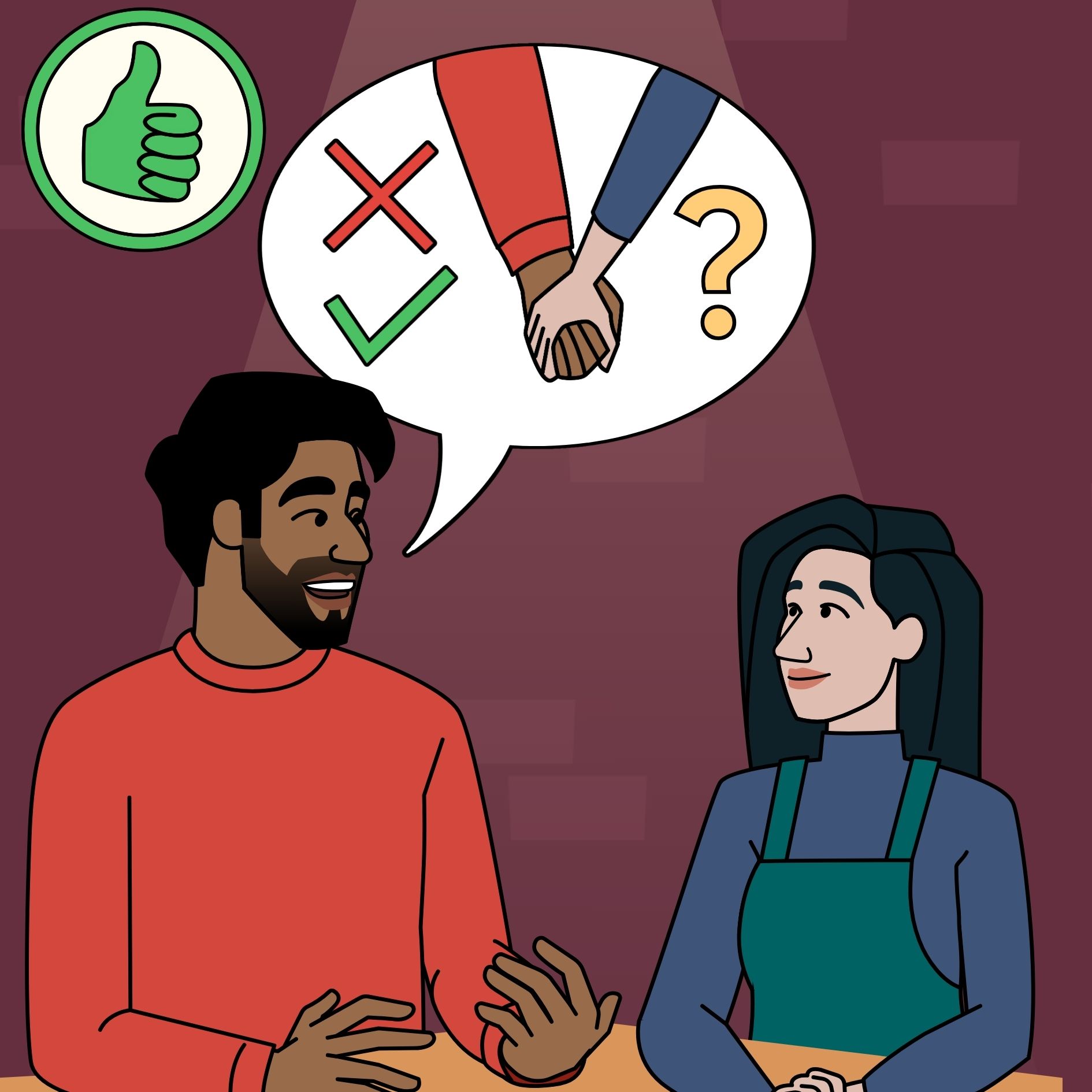
It is OK to ask someone you are dating about the kinds of touching they are OK with and not OK with.
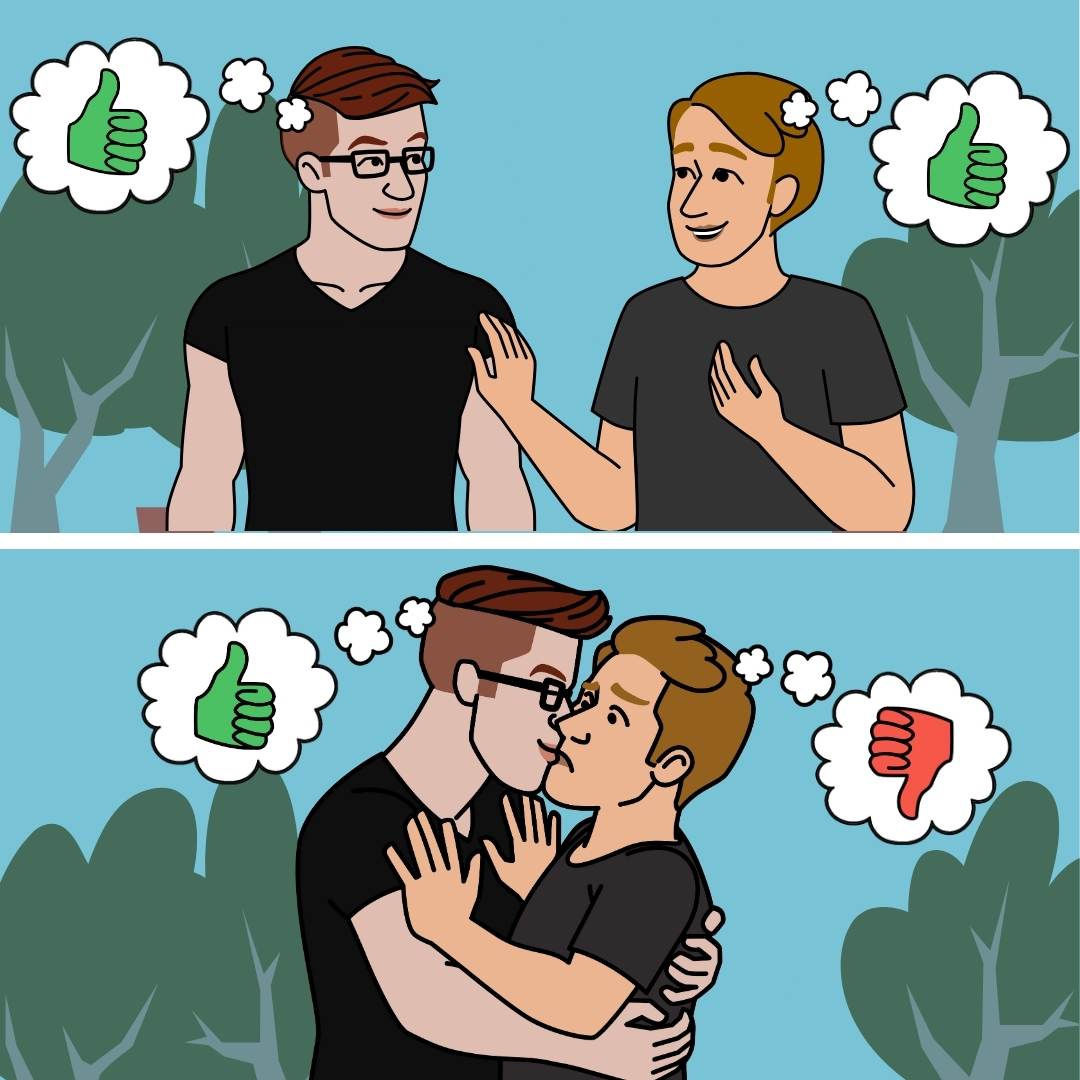
Just because someone says yes to one kind of touching, does not mean they are OK with all other kinds of touching.
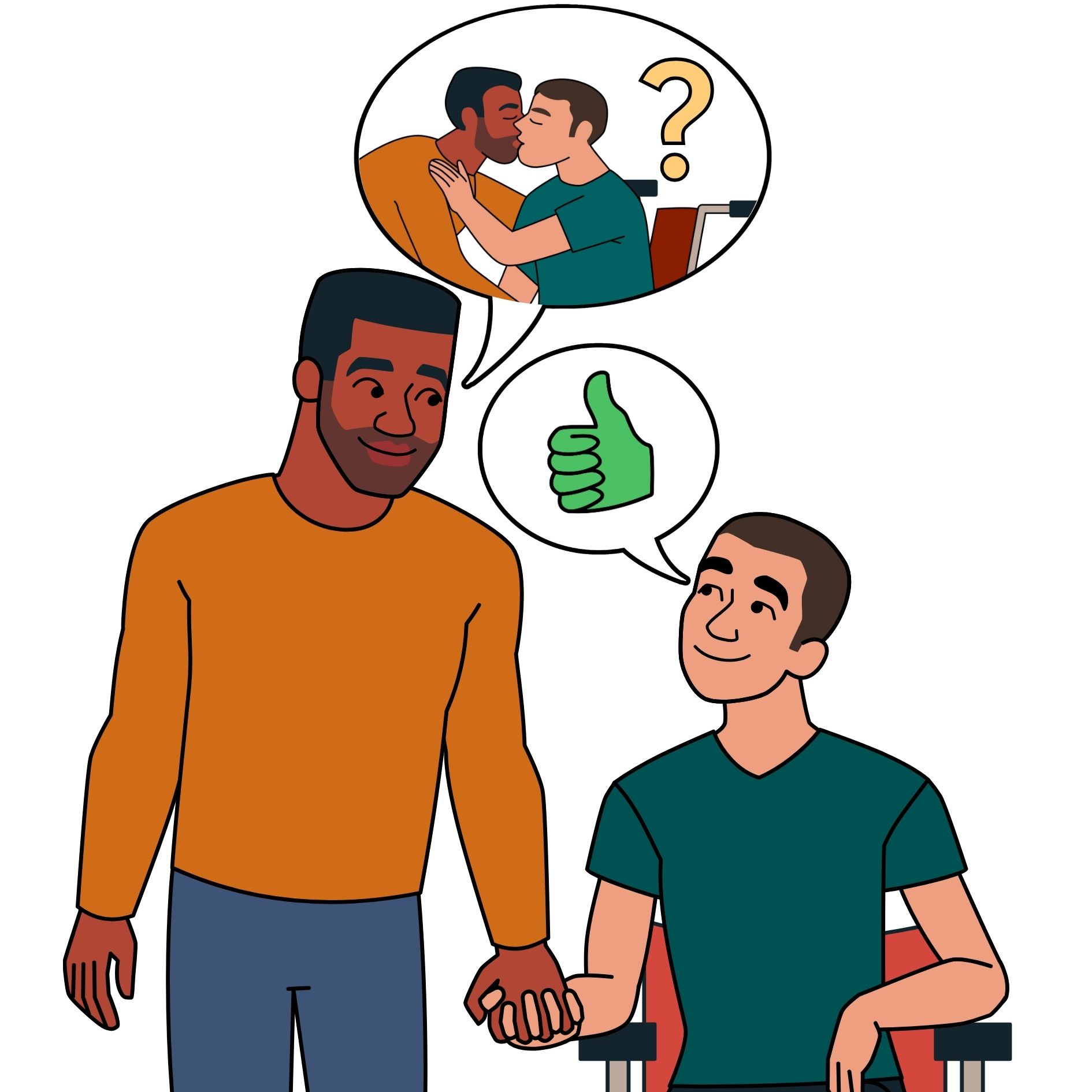
Always ask if someone is OK with touching in a new way.
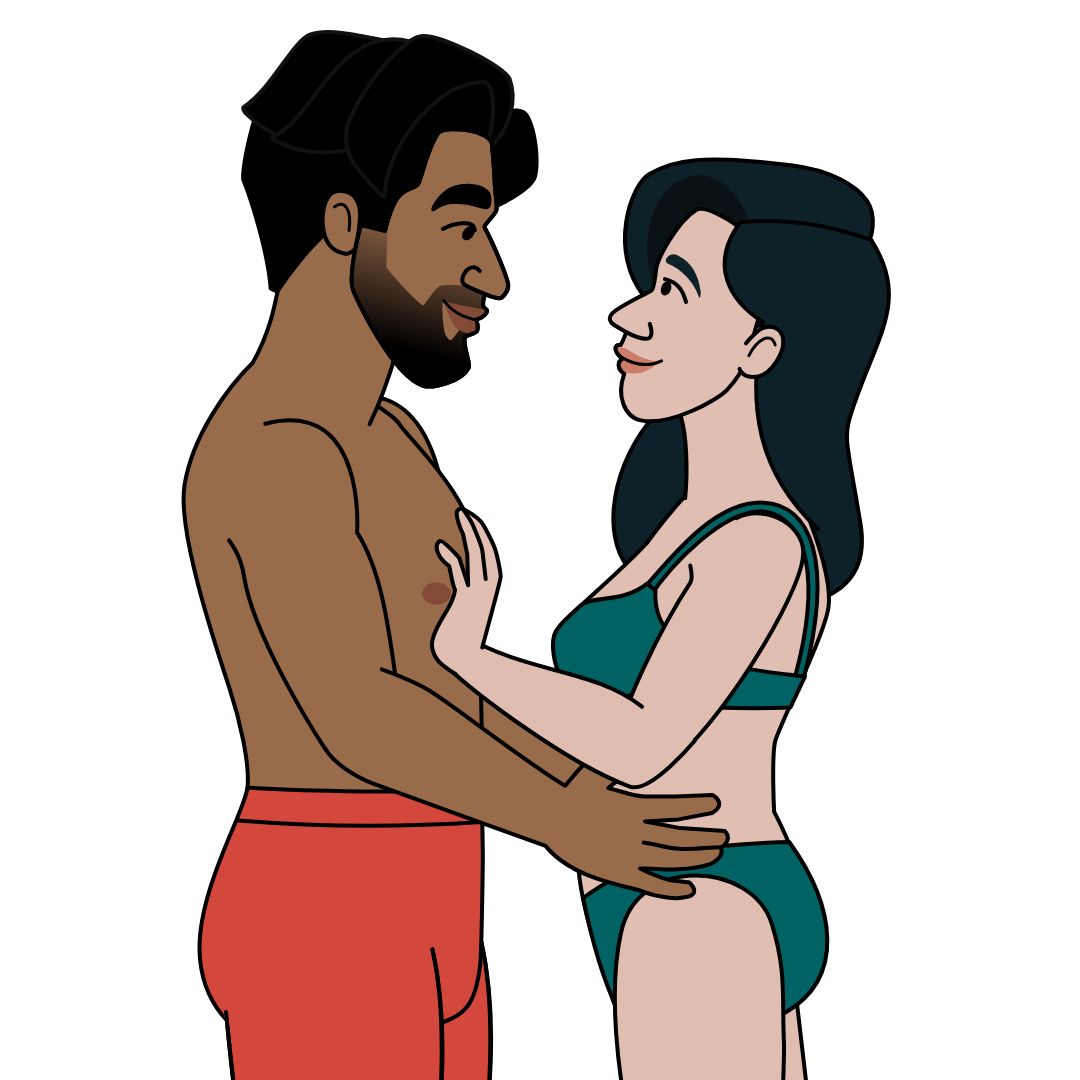
Some people in a relationship want to touch their partner in sexual ways.
Learn more about sexual touch.
More information about dating

Dating | Mencap (easy read)
An easy read resource about dating.

Introduction to consent | SECCA (easy read)
A free picture-based, easy English PDF resource about consent for people of all ages and abilities.

Wanted and Unwanted Touching | Secca
A brochure that teaches about what the difference is between wanted and unwanted touching. It provides examples of what yes or no may sound or look like and what consent is.



